Russia's invasion of Ukraine
University of Virginia experts assess Russia's assault on European stability
September 1, 2022
MIKHAIL GORBACHEV: THE DE-STALINIZER
UVA Russia expert Allen Lynch reflects on the last leader of the USSR
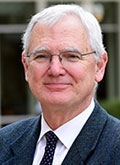
Mikhail S. Gorbachev was the most consequential Russian leader since Stalin. He revolutionized Soviet foreign policy, and with it the international system—peacefully—and for this accomplishment he earned the Nobel Peace Prize. Domestically, he de-Stalinized the Soviet system, removing the ingrained fear of the state and even of neighbors that Stalin bequeathed to succeeding generations.
He had a principled opposition to the use of force to resolve political disputes: When he told East European communist leaders that they were on their own, he meant it. And at home, any use of state-sponsored violence to curb political dissent (such as in Lithuania in January 1991) was quickly disavowed by him.
It was Gorbachev who was the principal agent, working with U.S. and German leaders, among others, to end the Cold War. Without Gorbachev, the peaceful unification of Germany and liberation of Eastern Europe could not have been achieved as soon as and in the way in which they were.
But Gorbachev was a leader with visions rather than programs. Had he a political network broad enough to work to implement his visions pragmatically and effectively, he might be remembered fondly in post-Soviet Russia today. On the whole, he is not.
August 17, 2022
EXPLAINING THE RUSSIAN WAR IN UKRAINE
UVA Russia expert Allen Lynch offers analysis of the ongoing conflict
 The war that Vladimir Putin’s Russia has been waging in Ukraine since February 24, 2022, violates one of the central lessons of Russia’s international history: Do not go to war in Europe without some powerful European allies on your side, not to mention without such allies or even the unimaginable scenario of all of Europe (even neutral Switzerland, Finland, and Sweden) aligned against you.
The war that Vladimir Putin’s Russia has been waging in Ukraine since February 24, 2022, violates one of the central lessons of Russia’s international history: Do not go to war in Europe without some powerful European allies on your side, not to mention without such allies or even the unimaginable scenario of all of Europe (even neutral Switzerland, Finland, and Sweden) aligned against you.
Just to cite the most famous examples: Between 1700–1721, Peter the Great defeated Sweden for predominance in the Baltic in alliance with Denmark, Poland, and Saxony; Russia’s territorial gains were recognized in the multilateral Treaty of Nystad of 1721. Between 1772–1795, when Russia under Catherine the Great eliminated Poland from the political map of Europe, it did so in close collaboration with Prussia and Austria, who each received their share. Between 1812–1815, Russia defeated Napoleon and sealed the peace at the Congress of Vienna in league with Britain, Austria, and Prussia. When Russia crushed the Hungarian constitutionalist revolution in 1849, it did so at the express invitation of Austria. And between 1941–1945, Stalin’s Russia defeated Nazi Germany in a “Grand Alliance” with the United States and Britain.
Where this rule has been violated, or rendered null and void by circumstances, the results have been disastrous for Russia: Russia was defeated on Russian soil in the Crimean War fighting alone against a Franco-British-Turkish coalition, supported from afar by Austria.
In 1878, at the Congress of Berlin, a diplomatically isolated Russia was forced by a united German and British front to give up most of its gains the previous year in the Russo-Turkish War. During the First World War, while Russia was formally allied with Britain and France, British inability to force the Turkish straits meant that Russia had to fight the combined armies of Germany, Austria and Turkey practically unaided, resulting in the collapse of the Tsarist system and the rapid emergence of Soviet Communism. And by the early 1980s, the strategic incompetence of the Brezhnev generation had led to a situation where the Soviet Union stood isolated against a coalition of powers including the United States, NATO Europe, Japan, and China whose combined economies were at least seven times higher than that of Soviet Russia’s and whose technological superiority was much vaster still.
Gorbachev understood the impossibility of this situation and made his bold break with the Soviet past. Putin has repeated this blunder, as retired Russian colonel Mikahil Khodoryonok stated to a shocked viewership on Russian television on May 16, underscoring Russia’s dangerous strategic isolation.
July 1, 2022
THE HOLLOW ORDER
UVA History Professor Philip Zelikow, a veteran American diplomat, proposes in Foreign Affairs how to rebuild an international system that works
 There they were, meeting in Beijing on February 4: Chinese President Xi Jinping and Russian President Vladimir Putin. Shortly before the start of the 2022 Winter Olympics, the two leaders released a remarkable 5,300-word joint statement about how the partnership between China and Russia would have “no limits.” The document went on at length about the two nations’ commitment to democracy. It called for a universalist and open world order, with the United Nations at the center. It stressed a commitment to international law, inclusiveness, and common values. It did all this even though Russia, as Xi and Putin both knew, was sending tanks and missile launchers to the Ukrainian border.
There they were, meeting in Beijing on February 4: Chinese President Xi Jinping and Russian President Vladimir Putin. Shortly before the start of the 2022 Winter Olympics, the two leaders released a remarkable 5,300-word joint statement about how the partnership between China and Russia would have “no limits.” The document went on at length about the two nations’ commitment to democracy. It called for a universalist and open world order, with the United Nations at the center. It stressed a commitment to international law, inclusiveness, and common values. It did all this even though Russia, as Xi and Putin both knew, was sending tanks and missile launchers to the Ukrainian border.
By comparison, the September 1940 joint statement issued by Germany, Italy, and Japan was a model of candor. The Axis powers were at least truthful when they announced that it was “their prime purpose to establish and maintain a new order of things.” Russia, meanwhile, has described its war against Ukraine as one of liberation. It decided that the country’s Jewish president was a Nazi. It declared that there was really no such thing as “Ukraine.” And it argued that a NATO alliance with a U.S. force commitment in Europe that was only one-seventh as large as it had been at the height of the Cold War was now an existential threat.
In their statement, China and Russia achieved peak hypocrisy. But the existing world order, which aspired to build a global commonwealth, had already been failing. The free world’s leaders had long ago started favoring performative commitments over the real action needed to safeguard the planet from crises. They expanded NATO without meaningfully responding to increasing Russian aggression. Distracted and chastened by misadventures in the Muslim world, Washington in particular disengaged from practical deeds, even as its rhetorical commitment to the international order varied. The United States’ high defense spending had more to do with satisfying domestic constituencies than with supporting any positive strategy. The world’s transition from fossil fuels to renewable energy sources was based on hollow pledges and private action. As support for globalization waned, the United States and other countries retreated from trade agreements and neglected international institutions for civilian and common economic action. The world’s drive in the early years of this century to improve global health and human development petered out.
June 30, 2022
WEARING RUSSIAN SANCTIONS LIKE A BADGE OF HONOR
On the Shield of the Republic podcast, Miller Center Senior Fellow Eric Edelman discusses the status of the War in Ukraine
June 28, 2022
HOW U.S. POLITICS MAY AFFECT AMERICAN LEADERSHIP ON THE WORLD STAGE
Miller Center Director of Presidential Studies Barbara Perry notes that America has reached "a regrettable point of regression"
 Today in the Miller Center’s weekly Ukraine “War Room” discussion, we talked about how the Biden administration might pivot from painting Vladimir Putin’s invasion of Ukraine as autocracy versus democracy. Instead, the U.S. could portray the war as the illegal violation of a sovereign nation’s territory.
Today in the Miller Center’s weekly Ukraine “War Room” discussion, we talked about how the Biden administration might pivot from painting Vladimir Putin’s invasion of Ukraine as autocracy versus democracy. Instead, the U.S. could portray the war as the illegal violation of a sovereign nation’s territory.
From the perspective of effective foreign policy and international law norms, this suggestion makes good sense. It also reflects the diminution of American democracy on the world stage. Just this week alone, I have fielded questions about the January 6th Committee’s revelations and the Supreme Court’s recent decisions from England, Australia, Canada, and the Middle East. It seems obvious that when a male Middle Eastern journalist is concerned about the reduction of women’s rights in the United States, America has reached a regrettable point of regression.
In fact, the Supreme Court has dipped below 30 percent in the most recent poll of Americans’ faith and confidence in the “jewel in the crown” of our judicial system, as the late Chief Justice William Rehnquist used to (correctly) label the tribunal. While a Supreme Court Fellow in 1994-95, I proudly briefed more than 3,000 visitors from 70 different countries, many of them new democracies in the post-Cold War world. They wanted to know the secret to such a successful history of the highest court in our land.
The leak of Justice Samuel Alito’s draft opinion in Dobbs v. Jackson Women’s Health Organization severely damaged the Court’s long and admirable tradition of confidentiality. Moreover, regardless of one’s view of the decision’s result, it’s not propitious for the Court’s legitimacy to have a new majority castigate the judicial temperament and expertise of previous members of the “Priestly Tribe.”
Even more damaging to the American experiment in a pluralistic republic are the Supreme Court’s four decisions this term that reverse decades of obeisance to the Founders’ concern over religion in the public square. Maximum freedom of religion, within the borders of the high wall of separation between church and state, has spared the U.S .from religious wars that have roiled human history, as well as conflicts that have divided modern nations like Northern Ireland, Israel, and Iraq, not to mention the Balkans conflict of the 1990s.
Oh, and the attempted coup that the 45th president supported on January 6, 2021, nearly took the U.S. over the Rubicon from a republican democracy to a Caesarian dictatorship. It’s no wonder that allies around the globe are asking, “What’s happening to the United States?”
June 25, 2022
UKRAINE, NATO, AND EMERGING STRATEGIC CHALLENGES
Miller Center Senior Fellow Eric Edelman is interviewed on Conversations with Bill Kristol
June 15, 2022
BIDEN IS TRYING TO DETER PUTIN FROM USING NUKES. HIS STAFF ISN’T HELPING.
Miller Center Senior Fellow Eric Edelman asserts that Biden’s national security team is making nuclear use more likely
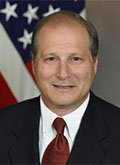
Over more than a half century of national security debates, President Biden made unmistakably clear his desire to reduce both the possibility of a nuclear weapons being used and the proliferation of those weapons. Sadly—for him, for our national interest, and for the world—his national security team seems intent on undercutting him at every turn.
Longstanding U.S. nuclear deterrence policy has confronted potential aggressors’ use of nuclear weapons with the certainty of a devastating response while declining to specify exactly what form that response might take. Consistent with that tradition, in his New York Times essay on Ukraine policy, President Biden noted that “Any use of nuclear weapons in this conflict on any scale would be completely unacceptable to us as well as the rest of the world and would entail severe consequences.”
Despite that, anonymous administration officials chose subsequently to inform reporters that should Russia’s President Vladimir Putin use a nuclear weapon in the context of his aggression against Ukraine, the American response “would almost certainly be nonnuclear,” specifying it could be “a combination of sanctions, diplomatic efforts and, if a military response is needed, conventional strikes.”At first glance, that might seem like just another example of administration staff walking back the president’s comments (a pattern that has apparently annoyed Biden), but this episode has both a backstory and real-world policy consequences that are more serious than other attempts to clean up a perceived misstatement.
June 14, 2022
WHAT ERDOGAN HAS WROUGHT?
Miller Center Senior Fellow Eric Edelman writes in The Dispatch that Turkey has damaged its standing in Europe

Turkish President Recep Tayyip Erdoğan has continued to hold Finland and Sweden’s potential membership in NATO hostage to his stated demands. He wants concessions from the two aspirants on issues connected to Kurdish terrorism and has an unstated agenda of distracting Turks from his catastrophic economic mismanagement, pleasing his Russian “competimate” Vladimir Putin, and making himself the center of attention at the forthcoming Madrid Summit of the North Atlantic alliance later this month, as well as greasing the skids for the potential sale of advanced U.S. F-16 aircraft to Turkey.
In the wake of Russia’s aggression in Ukraine, moving swiftly to incorporate Finland and Sweden into NATO is imperative for the geopolitical and military benefits it brings to European security. It is almost certain that a reluctant President Joe Biden will have to get involved, and it is equally likely that, at the end of the day, Erdoğan’s objections will be assuaged and the NATO enlargement process will move forward. But the damage that Erdoğan has done to Turkey’s standing in Europe and its long-term geopolitical interests (as opposed to his short-term domestic political interests) will be profound.
The damage is thrown into sharp relief by a recent domestic political crisis in Sweden and an extraordinary interview granted by Finland’s President Sauli Niinistö, one of Europe’s few statesmen of any vision or stature. The combination of the two demonstrate both the bad faith of Erdoğan, the unintended consequences of his recent hostage-taking diplomacy, and the potentially long-lasting aftereffects of the Turkish strongman’s strong arm diplomatic tactics.
June 13, 2022
CHINA’S SLOWDOWN AND ITS SPILLOVERS AROUND THE WORLD
UVA Darden Professor Frank Warnock notes that the severity of the impact is hard to estimate

After four decades of amazing performance, China’s economic growth is slowing. Substantially.
Since Deng Xiaoping’s reforms in 1978, the economy has grown an average of 9 percent per year, a four-decades-long run unmatched by any other country. But this year is different: A recent Barron’s article went so far as to suggest that the economy might contract for the year, which, if it occurs, would be the first time since Deng’s reforms.
What’s more, the slowdown is a surprise to the Chinese government, which announced a 5.5 percent growth target for this year. Barring massive government stimulus, it is almost certain that for the year, economic growth will be materially below the government’s proclaimed target for only the second time in three decades.
Even pre-pandemic, China’s growth had been slowing relative to the scorching post-1978 rate. In fact, the last time annual growth reached 9 percent was a decade ago. Part of this is by design. In the five-year plan announced at the 2017 19th Party Congress, the government signaled that the economy would transform from a singular focus on growth—in particular, export-led growth—to a multiple-objective, high-quality growth framework that focused on domestic demand. Such a structural transformation was always going to be accompanied by slower growth. More recently, an added drag comes from substantial stresses related to property developers’ debt.
But the biggest driver of the current slowdown is COVID-19, in particular this year’s severe zero-COVID-related lockdowns in several key cities. For example, Shanghai, a major economic hub, went into a lockdown in March, emerged from it on June 1, and is now, in parts of the city, in lockdown yet again.
May 30, 2022
FOR NATO, TURKEY IS A DISRUPTIVE ALLY
Miller Center Senior Fellow Eric Edelman is interviewed in The New York Times

Emre Peker, a London-based director for Europe at the Eurasia Group, a private consulting firm, said that he did not believe that Mr. Erdogan was seeking concessions from Washington. He expressed confidence that Turkey could work out an agreement with Sweden and Finland with the mediation of the NATO secretary general, Jens Stoltenberg.
Mr. Erdogan’s main priorities are getting his country’s security concerns about Kurdish separatists heard and getting the arms embargoes lifted, Mr. Peker said.
Some American analysts are skeptical. Eric S. Edelman, a former U.S. ambassador to Turkey and Finland, warned that Mr. Erdogan could be seeking to curry favor with Mr. Putin — or at least ease the anger in Moscow over the sale of lethal drones to Ukraine’s military by a private Turkish company.
“He has this very complicated relationship with Putin that he has to maintain,” Mr. Edelman said. “This is a good way of throwing a little bone to Putin — ‘I’m still useful to you.’”
May 26, 2022
WHAT IS NATO? AND WHY IS THERE DRAMA ABOUT EXPANDING IT?
Miller Center Senior Fellow Eric Edelman explains the importance of NATO in a UVA Today interview

The North Atlantic Treaty Organization is a 30-member security alliance formed after World War II to protect the nations of Europe from the Soviet Union. Its hallmark is something called “Article 5,” which states an attack against one member is an attack against all.
In addition to the member nations, several others routinely cooperate with NATO, countries like Finland and Sweden. But in the wake of Russia’s invasion of Ukraine, Finland and Sweden have applied for full NATO membership – a move Russia sees as a potential threat.
UVA Today asked Eric Edelman, a practitioner senior fellow at the Miller Center, to explain how the alliance works and what effect including Sweden and Finland would have. Edelman is retired from the U.S. Foreign Service, having served in senior positions at the Department of State, Department of Defense and the White House. He is a former ambassador to Finland and Turkey.
May 25, 2022
A LETTER FROM WARSAW
Stephen D. Mull, former U.S. ambassador to Poland, observes how a common Russian adversary has drawn Poland and Ukraine together

In Warsaw, May is usually the kindest month. Poles bust out of hibernation to visit the city’s freshly verdant parks, bicycles swarm the streets as if fleeing a kicked hive, and sidewalk cafés pop out of nowhere to quickly fill as daylight lingers late into the evening.
Returning this month to a city where I’ve lived intermittently as a U.S. diplomat since the 1980s, I found the place still crackling with the same springtime energy as before. But it is a city now transformed by war, refuge, and an undercurrent of fear as Putin’s war in next-door Ukraine grinds into its fourth month.
Warsaw’s international airport teems with arrivals and departures of foreign-aid workers, military personnel, and adventure seekers of every kind. I had arrived from Vienna, where mask wearing is still much in evidence, to a city with nary a mask in sight on its crowded streets and buses. Former defense minister Tomasz Siemoniak told me that most Poles have simply stopped paying attention to COVID (though low-grade infections continue apace) to concentrate on the war’s more pressing urgency. “Now we have a new infection to fight,” Siemoniak said. “Putin!”
Now an opposition leader in parliament, Siemoniak takes quiet pride in Poland’s central role in providing refuge to an estimated 3.5 million Ukrainians and facilitating NATO’s massive resupply of the Ukrainian military. He acknowledged the effort puts Poland at some risk, but it is a risk he said Poles are ready assume.
“If Putin succeeds in Ukraine,” he said, “we’re next in line, so we must do all we can to help them.” He jokes that Poland’s border town of Rzeszow, which hosts the bulk of newly deployed U.S. troops and is a hub for Ukraine support, has become a kind of “Polish Peshawar,” comparing it to the Pakistani city’s central role in coordinating resistance to the Soviet invasion of Afghanistan in the 1980s.
May 24, 2022
THE CYBERWAR THAT WASN'T IN UKRAINE
On the Lawfare podcast, Miller Center Senior Fellow Kristen Eichensehr ponders the absence of Russian cyberattacks
May 23, 2022
PUTIN'S WAR AND EUROPEAN POLITICS
On the Shield of the Republic podcast, Miller Center Senior Fellow Eric Edelman discusses the impact of Putin's invasion of Ukraine
May 18, 2022
THE STRONGMAN COMETH
Miller Center Senior Fellow Eric Edelman explains in The Dispatch why Turkey's Erdogan has a problem with Finland and Sweden joining NATO

Despite the fulminations of the Kremlin’s television propagandists and Russian bureaucrats seeking to anticipate the dictator’s views, it appears that Vladimir Putin has “no problem” with Finland and Sweden joining NATO. Despite earlier threats by a variety of Russian officials that the Nordic neutrals joining NATO would provoke “military-technical” reactions, including the possible deployment of nuclear weapons, it seems that Putin has bowed to the inevitable after a calm, respectful phone call with Finland’s impressive and statesmanlike President Sauli Niinisto. Despite Putin’s retreat, Turkey’s authoritarian boss Recep Tayyip Erdoğan has suddenly interposed his own objections, saying at first that Turkey was “not favorable” to Finland and Sweden’s membership in NATO and subsequently doubling down, arguing that, “We will not say ‘yes’ to those [countries] who apply sanctions to Turkey.”
Erdoğan’s view seems to represent a change of heart from earlier Turkish support for Finnish membership, conveyed to Niinisto in an April 4 phone call and in bilateral diplomatic contacts, not to mention Turkey’s traditional support for NATO’s enlargement since the end of the Cold War. The Turkish volte face reportedly has left diplomats at NATO headquarters in Brussels furious with the Turks, despite the public statements that all is well and the clear expectation that the alliance ultimately will move forward with Finnish and Swedish membership.
May 17, 2022
LATEST ON THE RUSSIAN INVASION OF UKRAINE
Miller Center Senior Fellow John M. Owen IV talks with The Public Morality podcast
May 13, 2022
A LEGAL APPROACH TO THE TRANSFER OF RUSSIAN ASSETS TO REBUILD UKRAINE
UVA History Professor Philip Zelikow, a veteran American diplomat, explains in Lawfare how frozen Russian assets can be utilized

In a recent Foreign Affairs essay co-authored with MIT economist Simon Johnson, I argued that it was essential for the G-7 and allied states to deploy a far-reaching strategy of Ukrainian reconstruction, tied to the ongoing process of EU accession for Ukraine, and funded in part by frozen Russian state and state-related assets.
The legal issue related to frozen Russian assets is important and contested. At an April 28 hearing of the House Foreign Affairs Committee, Rep. Tom Malinowski, who has been leading the legislative push to address Russian assets, asked Secretary of State Antony Blinken if he was looking beyond the issue of oligarch assets to address frozen Russian central bank assets to help rebuild Ukraine. Secretary Blinken said he agreed with this goal. The State Department was, he said, in the process of examining what could be done to utilize these assets, and how. On May 8, Josep Borrell, the EU’s foreign affairs leader, told the Financial Times that he was “very much in favour” of using these funds to rebuild Ukraine, given “the incredible amount of money” involved. “This is one of the most important political questions on the table,” he said. “Who is going to pay for the reconstruction of Ukraine.”
Paul Stephan has critiqued the legality of trying to seize or sell off Russian assets. But much of his fire was directed at a different approach that had been suggested in a New York Times op-ed by Laurence Tribe and Jeremy Lewin. Picking up on Stephan’s well-publicized critique, Roll Call wrote that Biden’s plan to use Russian money “would take an act of Congress and poses some risk to US taxpayers.” If the plan is designed carefully, neither of these statements needs to be true. Here is how, legally, the United States and allied governments might implement the approach I advocated with Johnson.
The approach uses established international law on state countermeasures for wrongful state action, including the precedent of internationally imposed compensation after the 1990 Iraqi invasion of Kuwait. These precedents must be adapted to the circumstances of this major war, which is not likely to end soon. This approach is not meant to coerce Russian behavior, though the procedures should give Russia more chances to meet its international obligations or make a deal with Ukraine. Nor is this approach about punishing Russia. It is about how to compensate, and save, Ukraine.
May 12, 2022
FINLAND PURSUES NATO MEMBERSHIP AS RUSSIA VOWS RETALIATION
On PBS NewsHour, Miller Center Senior Fellow Eric Edelman discusses the implications of Finland's decision to apply to join NATO
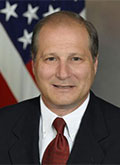 Finland announced Thursday it would end its decades-long neutral status and seek to join NATO. A formal declaration will be made Sunday, while Sweden is expected to follow suit next week. Both nations have resisted joining NATO but were spurred by Russia's invasion of Ukraine to change course. Eric Edelman, U.S. ambassador to Finland during the Clinton administration, joins Amna Nawaz to discuss.
Finland announced Thursday it would end its decades-long neutral status and seek to join NATO. A formal declaration will be made Sunday, while Sweden is expected to follow suit next week. Both nations have resisted joining NATO but were spurred by Russia's invasion of Ukraine to change course. Eric Edelman, U.S. ambassador to Finland during the Clinton administration, joins Amna Nawaz to discuss.
May 10, 2022
PUTIN'S SUBDUED VICTORY DAY SPEECH
UVA Russia expert Allen Lynch writes that a reduced scope of objectives indicates possible options for settlement
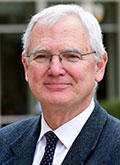 Contrary the predictions of nearly all U.S. and European observers, nothing dramatic emerged from Russian President Vladimir Putin’s Victory Day speech on Red Square on May 9 concerning the Russian war in Ukraine: He did not declare victory or formal war; he did not announce a mass mobilization of Russian society; he did not repeat earlier veiled nuclear threats; neither did he indicate any diplomatic way forward. This absence of the dramatic is actually quite dramatic in itself.
Contrary the predictions of nearly all U.S. and European observers, nothing dramatic emerged from Russian President Vladimir Putin’s Victory Day speech on Red Square on May 9 concerning the Russian war in Ukraine: He did not declare victory or formal war; he did not announce a mass mobilization of Russian society; he did not repeat earlier veiled nuclear threats; neither did he indicate any diplomatic way forward. This absence of the dramatic is actually quite dramatic in itself.
In a brief speech less than 10 minutes in duration, Putin struck a sober tone, acknowledging significant Russian losses in its “special military operation” in Ukraine, now in its 11th week, and indicating no path forward on either the military or diplomatic tracks. He never mentioned Ukraine by name but neither did he pronounce the term Novorossiya (New Russia) that he has in the past invoked to legitimize (in Russians’ eyes) the absorption of all of southeastern Ukraine into Russia. At the same time, Putin did refer to the United States and NATO and even the alliance between the Soviet Union and the United States and Great Britain during the Second World War: the former by way of justifying his decision for war because of their putative refusal to consider Russian negotiating terms of late 2021 for European security; the latter as a reference to the benefits that could be accrued from security collaboration among Moscow, Washington, London, and their allies.
Putin’s specific references to the ongoing war were limited to the “Donbass” (Donetsk Basin) region of far eastern Ukraine; and while he mentioned alleged “neo-Nazi” influences in the Ukrainian government, Putin avoided calling for regime change in Kyiv.
In our judgment, Putin’s remarks, while in no way indicating a rejection of the premises for beginning the war in the first place, do reflect a much-subdued Russian reevaluation of the prospects for Russian “victory.” They imply a dramatically reduced scope of Russian objectives and a possible willingness to negotiate a settlement on the basis, but not limited to, the status quo ante bellum. Of course, this reevaluation in Moscow, such as it is, is fundamentally the byproduct of the military facts on the ground, i.e., that while Moscow can destroy much of what it wants in Ukraine, it has not the material power to destroy Ukrainian capacity to resist Russia or the moral power to govern significant parts of the Ukraine—even in the allegedly pro-Russian east—either directly or indirectly. At the same time, it remains most unlikely that Ukraine’s armed forces, however much they may be reinforced by the impressive Lend-Lease- type aid program now coming from NATO countries, can remove Russian forces from all of Ukrainian soil, including Crimea, by force of arms alone.
Based in part on Putin’s remarks, we outline terms of a possible settlement below. Consider, first, the chief substantive points that Putin made in his “Victory Day” speech.
May 4, 2022
THE WAR'S DECISIVE MOMENT
Miller Center Senior Fellow Eric Edelman dissects the war in Ukraine on the Shield of the Republic podcast
May 2, 2022
INTERNATIONAL FINANCIAL IMPACTS OF RUSSIA'S WAR IN UKRAINE
Darden Professor Yiorgos Allayannis examines the impact on the dollar vs. the ruble
 The invasion of Ukraine continues, and several questions regarding the Russian and global economy remain unanswered:
The invasion of Ukraine continues, and several questions regarding the Russian and global economy remain unanswered:
- Will the sanctions be successful?
- What does successful mean?
- What will be the impact on the Russian economy in the short/medium/long term?
- What will be the impact on the United States, its allies, and the rest of the world?
- What is the potential impact on the dollar?
Though it is difficult to address each question in its entirety, I will offer some answers with the hope of generating further discussion.
The Western sanctions are unprecedented in their scale and scope. Furthermore, they are being imposed on Russia, which is more integrated into the world economy than other countries that face similar sanctions (e.g., Cuba, Iran).
In a sense, this time is different with respect to sanctions. Russia’s largest banks, including SberBank and VTB, operated in several western countries (including the UK) and are listed on the London Stock Exchange. Removing these banks from the SWIFT payment system prevents them from intermediating between clients, making them effectively insolvent. A bank that cannot facilitate export/import transactions has few options:
- Concentrate on facilitating domestic transactions in rubles
- Conduct business with countries willing to disregard Western sanctions, or
- Trade in currencies other than those of the United States and its allies.
April 29, 2022
COLD WAR II
Miller Center Senior Fellow Allan Stam writes that the Russo-Ukrainian war offers insight into the likely emergence of a new Cold War

As the war in Ukraine grinds into its third month, it is not too early to start asking what lessons we might take from the conflict. One set of lessons focuses on the tactical—how man-portable precision-guided munitions appear to have reduced the value of large-scale armor formations. Another perspective focuses on the lessons flowing from the risks and rewards of NATO expansion over the past two decades. Pulling further back, looking at the conflict from the perspective of the entire international system, the Russo-Ukrainian war provides essential information about the likely emergence of a new Cold War.
For the past decade, pundits and serious analysts alike have questioned whether or not the U.S.-led liberal system is becoming locked into a zero-sum bipolar conflict with a Chinese-centric system. The competition would be between a loose collection of authoritarian states led by China and a network of alliances and trade agreements between the systems’ liberal democracies. The autocratic side would include Russia, not as a spoiler but as a central figure in the competition between the international system’s two leaders—the United States and China.
The Korean War of 1950-1953 provides a useful comparative case to understand better how the Russo-Ukraine War is transforming the international system. The transformation is not so much material but in the form of a significant shift in Western beliefs about Russian and Chinese intentions. Before the North Koreans invaded South Korea, Secretary of State Dean Acheson, in a National Press Club Speech, stated that Asian countries were on their own to a significant extent. Moreover, America’s Asian friends could not count on the United States to come directly to their assistance. While the Secretary’s intentions remain disputed, it is clear he did not lay down an unambiguous deterrent statement.
April 26, 2022
UKRAINE, CYBERATTACKS, AND THE LESSONS FOR INTERNATIONAL LAW
Miller Center Senior Fellow Kristen Eichensehr writes that the war is testing theories about how cyberattacks fit into conventional war
 Russia’s invasion of Ukraine has put to the test theories about how cyberattacks fit into conventional war. Contrary to many expectations, cyber operations appear to have played only a limited role in the initial stages of the invasion, prompting competing theories and rampant speculation about why. Although written while the conflict continues, this essay considers how either of two broad explanations for the limited role of cyberattacks to date—that Russia’s attempted cyberattacks were thwarted or that Russia chose not to deploy them widely—challenges conventional wisdom about cybersecurity. The essay concludes by suggesting that one lesson international lawyers should draw from the current conflict is the urgent need to clarify and enforce international rules not just for the rare high-end destructive or widely disruptive cyber operations, but also for lower-level operations that have proven more consistently problematic, both in Ukraine and elsewhere. Clarifying such rules could help to manage escalation risk now and in the future, even if such rules—like the most venerable international law prohibitions that Russia’s invasion has violated—do not necessarily restrain behavior directly.
Russia’s invasion of Ukraine has put to the test theories about how cyberattacks fit into conventional war. Contrary to many expectations, cyber operations appear to have played only a limited role in the initial stages of the invasion, prompting competing theories and rampant speculation about why. Although written while the conflict continues, this essay considers how either of two broad explanations for the limited role of cyberattacks to date—that Russia’s attempted cyberattacks were thwarted or that Russia chose not to deploy them widely—challenges conventional wisdom about cybersecurity. The essay concludes by suggesting that one lesson international lawyers should draw from the current conflict is the urgent need to clarify and enforce international rules not just for the rare high-end destructive or widely disruptive cyber operations, but also for lower-level operations that have proven more consistently problematic, both in Ukraine and elsewhere. Clarifying such rules could help to manage escalation risk now and in the future, even if such rules—like the most venerable international law prohibitions that Russia’s invasion has violated—do not necessarily restrain behavior directly.
April 22, 2022
ASSESSING U.S. ASSISTANCE AND CRITICAL QUESTIONS OF THE UKRAINE WAR
Miller Center Senior Fellow John M. Owen IV talks with UVA Today
 As the United States continues to be a major contributor to Ukraine’s war effort, Russia has warned the U.S. to back off.
As the United States continues to be a major contributor to Ukraine’s war effort, Russia has warned the U.S. to back off.
This news was first reported by The Washington Post, citing a diplomatic note from Moscow to Washington that said U.S. weapon shipments were “adding fuel” to the conflict in Eastern Europe. As a result, Russia said, the U.S. could be hit with “unpredictable consequences.”
Undeterred, President Biden on Thursday announced an additional $800 million military package to be sent Ukraine’s way, including heavy artillery, 144,000 rounds of ammunition and drones.
How does this play out? How seriously should the Biden administration take the Russian threats? And what would be the war’s tipping point to force the U.S. and NATO into direct military action?
UVA Today caught up with University of Virginia politics professor John Owen to analyze the situation. A Miller Center of Public Affairs senior fellow, Owen has expertise in foreign affairs, American defense and security, and war and terrorism.
Q. The U.S. has now committed approximately $3.4 billion to help Ukraine since the war began on Feb. 24. How does this compare to other assistance efforts from the U.S.? Is it an unprecedented amount?
A. The amount of military aid is unusual, but not unprecedented. U.S. military aid to Ukraine has totaled $3.4 billion in roughly two months, which comes to an annual rate of more than $20 billion. By comparison, in World War II, the U.S. Lend-Lease program extended $500 billion (in today’s dollars) in military aid to Great Britain over four years – a far greater annual rate of $125 billion. We extended another $180 billion to the Soviet Union in the same four-year period. (These figures included food aid.) Of course, for most of that period, the United States was fighting Nazi Germany, too. But we started Lend-Lease in March 1941, nine months before we actually joined the war. So Lend-Lease for those first nine months was somewhat like our program in Ukraine.
The only thing that comes close to our level of aid to Ukraine today is U.S. military aid to Israel, which has averaged around $13 billion per annum in recent years.
April 20, 2022
THE RUSSO-UKRAINIAN WAR AND GLOBAL ORDER
Writing in The Hedgehog Review, John M. Owen IV looks at what the war might mean for the liberal international order
 The outcome of Russia’s war on Ukraine is far from clear. As of the time of this writing, Moscow and Kyiv are beginning a set of battles over the east and south of Ukraine. A war of attrition is taking shape, with no end in sight. There remains the possibility—low, but greater than zero—that the war will spread and involve NATO directly, or even involve the use of chemical, biological, or nuclear weapons.
The outcome of Russia’s war on Ukraine is far from clear. As of the time of this writing, Moscow and Kyiv are beginning a set of battles over the east and south of Ukraine. A war of attrition is taking shape, with no end in sight. There remains the possibility—low, but greater than zero—that the war will spread and involve NATO directly, or even involve the use of chemical, biological, or nuclear weapons.
Thus far, however, this much is clear. The war has exposed Russia as a conventional also-ran bristling with 4,500 nuclear warheads, but not a great power. The war has also unleashed a number of complications: It has heightened the dependency of Russia’s economy on energy exports; jeopardized those exports to the lucrative European market; affected Russia internally by making it more autocratic and opening a new brain drain; generated remarkable solidarity in the West, including a probable further expansion of NATO in the Nordic region and deployments of military assets to eastern members; and led those democracies to impose severe economic sanctions on Russia, including a freeze on Russia’s sovereign wealth deposits in their banks and a disabling of Russian banks from using the SWIFT system. Dozens of Western companies, under societal pressure, have closed down or suspended operations in Russia. (By “the West,” I mean, following convention, not only North America and Europe but also other wealthy democracies including Japan, South Korea, Australia, and New Zealand, all of which thus far have joined the sanctions against Russia.)
The war also has demonstrated that most of the rest of the world—that is, the great majority of the world’s population—is more ambivalent about the war than is the West. The war has put China on the spot. That country’s growth has slowed in recent years, and in the medium term, that growth will continue to require economic partnerships with the West. No doubt Xi Jinping was unhappy with Putin for attacking Ukraine on February 24. But now he and China’s leadership must try to capitalize on the war and its aftermath.
Taken together, these ramifications of the war could accelerate the separation of global order into two separate but overlapping international orders: the familiar liberal international order, supervised and underwritten by the United States, and an authoritarian-capitalist international order, supervised and underwritten by China. I have written about this possibly emerging global order here. It would result from ongoing efforts by each great power—the United States and China—to shape the international environment to its own advantage and the advantage of its domestic regime. That is, America tries to make the world select for liberal democracy, but China tries to make it select for authoritarian capitalism.
April 19, 2022
THE U.S. CAN PROSECUTE RUSSIAN LEADERS FOR WAR CRIMES
UVA Law School Professor Thomas Nachbar argues in Lawfare that a prosecution in the U.S. should be on the table
 Since April 4, when President Biden accused Russian President Vladimir Putin of being a war criminal, many commentators have focused on how Russian leaders might be subject to international war crimes trials. But there is another option that should be on the table: a U.S. prosecution.
Since April 4, when President Biden accused Russian President Vladimir Putin of being a war criminal, many commentators have focused on how Russian leaders might be subject to international war crimes trials. But there is another option that should be on the table: a U.S. prosecution.
It is a remarkable thing for the president of the United States to personally accuse a foreign leader of being a war criminal. Such an allegation should not be made unless it can be backed up, not just by facts but also by action. It’s one thing when a human rights organization alleges war crimes; it is another when the accuser heads an executive branch capable of actually prosecuting war crimes, as Biden does.
Under the War Crimes Act, 18 U.S.C. § 2441, the commission of a war crime is punishable by fine, by imprisonment or, if it results in death, by the death penalty. The statute adopts the definitions of war crimes from a combination of the Geneva Conventions of 1949, the Hague Convention of 1907, and Protocol II to the Convention on Certain Conventional Weapons, which relates to landmines and booby traps. Any number of the listed acts would be satisfied by the intentional killing of civilians alleged to have taken place in Bucha and elsewhere in Ukraine. (On April 12, Biden upped the ante by alleging that Russia is engaged in genocide in Ukraine. Genocide is also punishable under federal law, but proving genocide is likely to be far more difficult than proving individual war crimes, and the number of officials who could be charged with genocide is likely far more limited.)
The major limit on the reach of the U.S. war crimes statute is that the crime must affect either a U.S. service member or a “national of the United States,” which is to say either an American citizen or someone who “owes permanent allegiance to the United States.” Geoff Corn has argued recently in Lawfare that the War Crimes Act should be amended to remove this limitation, but as the scope of war crimes allegations grows in Ukraine, so does the likelihood that the War Crimes Act’s limitation will be satisfied.
As Ukrainian forces advance into formerly Russian-held areas of Ukraine and the full scale of possible war crimes become clear, one way the United States can pursue accountability is to ascertain whether any of the individuals harmed by Russian forces are nationals of the United States. If so, then there would be no need for an ad hoc international tribunal, like the International Criminal Tribunal for the Former Yugoslavia, or a trial by the International Criminal Court, whose proceedings are not only notoriously drawn out but whose legitimacy is undermined by U.S. refusal to join. Although an American prosecution would be “international” in the sense that one country would be holding another to account, the trials could take place in U.S. federal court under well-established and fair procedures.
April 19, 2022
HOW UKRAINE CAN BUILD BACK BETTER
UVA History Professor Philip Zelikow, a veteran American diplomat, argues in Foreign Affairs for repurposing Russia's frozen assets
 The world's attention has understandably been focused on the military side of the war in Ukraine. But in the next stage, the political-economic strategy may be decisive. As Tacitus once wrote of the Roman strategy in Britain, "they make a desolation and they call it peace." Russia aims to do this to Ukraine not only with missile strikes and atrocities against civilians, but also by destroying the country’s economy. Its goal is not just Ukraine’s physical destruction, it is also to grind down the country’s hopes.
The world's attention has understandably been focused on the military side of the war in Ukraine. But in the next stage, the political-economic strategy may be decisive. As Tacitus once wrote of the Roman strategy in Britain, "they make a desolation and they call it peace." Russia aims to do this to Ukraine not only with missile strikes and atrocities against civilians, but also by destroying the country’s economy. Its goal is not just Ukraine’s physical destruction, it is also to grind down the country’s hopes.
So far, Russia has successfully and severely damaged Ukraine’s economic prospects. It has shut down maritime shipping—the main way the country usually exports goods—with a naval blockade. A large fraction of Ukraine’s people have already become refugees or are otherwise displaced from their homes and businesses. Ukraine’s overall economy has suffered a massive blow, and the World Bank estimates that it will shrink by 45 percent this year (although the magnitude will depend on the duration and intensity of the war).
The coalition of countries helping Ukraine, centered in the G-7 and the European Union, must therefore prepare a countering strategy. The centerpiece of it should be a bold plan to rebuild Ukraine, better than before. The expenses will be substantial: in addition to military assistance, such an effort will cost at least $500 billion, and aid will need to start flowing this month. As was the case with Marshall Plan assistance, most of this money must come in grants, not loans. Both the World Bank and the International Monetary Fund can provide technical help, but such a plan will quickly outstrip their existing capabilities. Ukraine’s allies will need new mechanisms.
A core potential source of funds: the Russian assets currently frozen by G-7 and EU governments, as well as Switzerland. That may seem like a dramatic proposal. But this is completely consistent with international norms and rules. In fact, Russia will need to rush to negotiate if it wants to limit its losses exclusively to already frozen funds. The coalition should also tightly link massive reconstruction with Ukraine’s accession to the European Union, an institution that can help it overcome past governance challenges and better adapt its economy to the future.
April 18, 2022
CAUSES AND CONSEQUENCES OF RUSSIA'S WAR IN UKRAINE
UVA Russia expert Allen Lynch offered analysis of the conflict to the Italian organization Trentini Nel Mondo
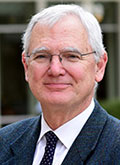 In 1900, the Russian War Minister reported to Tsar Nicholas II on the Empire’s strategic situation. Russia, Aleksei Kuropatkin wrote, had nothing to gain from war, even in victory. In the event of victory against Austria, Russia would be compelled to annex Austria’s eastern Galician territories, populated by a mainly Ukrainian population that had never been part of Moscow’s realm and which looked toward Warsaw, Vienna, and even Rome for its cultural, legal, social, and for many even religious points of reference. The Galician Slavs had no desire to become Russian subjects and instead wished to establish independent states. Were Russia ever to acquire Galicia, Kuropatkin concluded, it could become “an Alsace-Lorraine…, providing a constant pretext for the renewal of hostilities.” (As recounted by William Fuller, Strategy & Power in Imperial Russia, 1600-1914.)
In 1900, the Russian War Minister reported to Tsar Nicholas II on the Empire’s strategic situation. Russia, Aleksei Kuropatkin wrote, had nothing to gain from war, even in victory. In the event of victory against Austria, Russia would be compelled to annex Austria’s eastern Galician territories, populated by a mainly Ukrainian population that had never been part of Moscow’s realm and which looked toward Warsaw, Vienna, and even Rome for its cultural, legal, social, and for many even religious points of reference. The Galician Slavs had no desire to become Russian subjects and instead wished to establish independent states. Were Russia ever to acquire Galicia, Kuropatkin concluded, it could become “an Alsace-Lorraine…, providing a constant pretext for the renewal of hostilities.” (As recounted by William Fuller, Strategy & Power in Imperial Russia, 1600-1914.)
Kuropatkin’s 1900 prophecy can be extended today to nearly the entirety of Ukraine: Russia cannot afford to lose the current Russo-Ukraine War but it also cannot afford victory over a Ukraine that it cannot now possibly govern, directly or indirectly. Ukraine too cannot afford to lose, while the price of a victory imposed on Russia by exclusively military means seems out of reach. We propose nine steps to end the war before it consumes all concerned.
April 16, 2022
THE RUSSIAN SHIP THAT UKRAINE SANK
UVA History Professor Philip Zelikow, a longtime senior American diplomat, recalls the history of the ship
 A small presidential history note: The cruiser Moskva, just sunk by Ukraine, was — back in 1989 — the cruiser Slava. It was renamed later. Back in autumn 1989, I went out to the Black Sea Fleet base in Sevastopol and visited and walked in and around that cruiser, advancing the Malta summit.
A small presidential history note: The cruiser Moskva, just sunk by Ukraine, was — back in 1989 — the cruiser Slava. It was renamed later. Back in autumn 1989, I went out to the Black Sea Fleet base in Sevastopol and visited and walked in and around that cruiser, advancing the Malta summit.
The ship was the pride of the Soviet fleet. At Malta, Mikhail Gorbachev used the Slava as his base ship. There was originally some thought that one or another meeting might have been held onboard the Slava if weather had not made that too difficult. I recall a point, on the ship, when President George H. W. Bush's communications adviser Sig Rogich was speculating about where to put the photo-op, and I cautioned him that his preferred spot was on top of the ship’s main missile tubes.
Notably, the ship that hosted FDR and Winston Churchill for the Atlantic Charter meeting in August 1941 was also ill-fated: The Prince of Wales was sunk by the Japanese on December 10, 1941
April 15, 2022
THE LESSONS OF UKRAINE FOR TAIWAN—AND THE U.S.
Miller Center Senior Fellow Eric Edelman writes in The Bulwark that the policy of 'strategic ambiguity' over Taiwan's defense is played out
 Although Ukraine’s potential membership in NATO has been discussed for more than a decade and half, it is not a member—and so the alliance is not committed to defend it, nor to attempt to deter attacks against it. (Indeed, a vote over whether to deter an attack against Ukraine would likely have splintered the alliance.) Vladimir Putin took full advantage of Ukraine’s living in this gray zone where its frequently voiced aspirations for NATO membership are not matched by a security guarantee. Still, after Russia’s invasion began, NATO’s guilty conscience prompted decisions to funnel arms and equipment into the beleaguered country; the Western anti-tank and anti-aircraft systems reinforced and enhanced the ability of Ukrainian defenders to wreak enormous damage on the Russian aggressor, rendering combat ineffective some 15 to 20 percent, if not more, of the Russian battalion tactical groups devoted to the operation.
Although Ukraine’s potential membership in NATO has been discussed for more than a decade and half, it is not a member—and so the alliance is not committed to defend it, nor to attempt to deter attacks against it. (Indeed, a vote over whether to deter an attack against Ukraine would likely have splintered the alliance.) Vladimir Putin took full advantage of Ukraine’s living in this gray zone where its frequently voiced aspirations for NATO membership are not matched by a security guarantee. Still, after Russia’s invasion began, NATO’s guilty conscience prompted decisions to funnel arms and equipment into the beleaguered country; the Western anti-tank and anti-aircraft systems reinforced and enhanced the ability of Ukrainian defenders to wreak enormous damage on the Russian aggressor, rendering combat ineffective some 15 to 20 percent, if not more, of the Russian battalion tactical groups devoted to the operation.
Today, despite the Ukrainians’ various successes against the invaders and despite Russia’s apparent withdrawal from the environs of Kyiv and northwestern Ukraine, the country’s situation remains parlous.
There are many lessons for Americans to draw from all this. And there are lessons, too, for Xi Jinping and his colleagues among China’s top leadership. For starters, the United States does not have a formal treaty commitment to Taiwan’s defense, à la NATO’s famous Article 5. After Russia’s invasion of Ukraine, this presents the Biden administration, as well as other Republican and Democratic leaders who profess to care about security in Northeast Asia, with a clear choice: If the United States is prepared to see Taiwan conquered by the People’s Liberation Army, the United States should retain its current policy. If, however, we are not prepared to see a thriving, prosperous democratic society swallowed up by a brutal autocratic regime led by messianic zealot, there are a series of steps the United States must take—and soon.
April 8, 2022
PUTIN'S AMERICAN FRIENDS
Miller Center Senior Fellow Eric Edelman joins the Beg to Differ podcast to discuss Putinists abroad and at home
April 8, 2022
FRICTION, FRAMING, AND U.S. CYBERSECURITY-RELATED ACTIONS AGAINST RUSSIA
The U.S. is making life more difficult for Russian cyber actors, writes Miller Center Senior Fellow Kristen Eichensehr in Just Security
 On Wednesday, the U.S. Department of Justice (DOJ) announced that it had “disrupt[ed] a two-tiered global botnet of thousands of infected network hardware devices under the control of a threat actor known to security researchers as Sandworm,” and identified by the U.S. government as “the Main Intelligence Directorate of the General Staff of the Armed Forces of the Russian Federation (the GRU).” This action is the latest in what appears to be a string of public moves to impose additional friction on malicious Russian actors in cyberspace since the invasion of Ukraine, and it’s also emblematic of the efforts by the United States over the last few months to shift the framing of some cybersecurity threats from purely criminal matters to national security concerns.
On Wednesday, the U.S. Department of Justice (DOJ) announced that it had “disrupt[ed] a two-tiered global botnet of thousands of infected network hardware devices under the control of a threat actor known to security researchers as Sandworm,” and identified by the U.S. government as “the Main Intelligence Directorate of the General Staff of the Armed Forces of the Russian Federation (the GRU).” This action is the latest in what appears to be a string of public moves to impose additional friction on malicious Russian actors in cyberspace since the invasion of Ukraine, and it’s also emblematic of the efforts by the United States over the last few months to shift the framing of some cybersecurity threats from purely criminal matters to national security concerns.
Some hints have emerged about what the United States may be doing to help Ukraine on cybersecurity. In congressional testimony last month, National Security Agency Director and Commander of Cyber Command Gen. Paul Nakasone said, “We had ‘hunt forward’ teams from U.S. Cyber Command in Kyiv. We worked very, very closely with a series of partners at NSA and the private sector to be able to provide that information.” He noted the engagement had been long-standing in saying, “We’ve worked very, very hard with Ukraine over the past several years.” And in testimony earlier this week, he explained that “a series of assumptions” the Russians “may have made,” “coupled with the defensive capabilities” the United States has built with Ukraine have contributed to the relative lack of significant successful cyber operations against Ukraine in recent weeks.
April 5, 2022
THE WAR AND THE POPULIST INTERNATIONAL
Miller Center Senior Fellow John M. Owen IV notes that the West will remain divided over Russia's invasion of Ukraine
 Wars often unsettle and reconfigure politics within and among other countries. This one, so far, has strengthened pro-NATO sentiment and policy in Europe and weakened the populism that has divided the West. But the policies of Hungary’s government and its landslide reelection this past Sunday ensure that the West will remain divided, and that in turn could inhibit NATO and the EU from responding to Russia more vigorously.
Wars often unsettle and reconfigure politics within and among other countries. This one, so far, has strengthened pro-NATO sentiment and policy in Europe and weakened the populism that has divided the West. But the policies of Hungary’s government and its landslide reelection this past Sunday ensure that the West will remain divided, and that in turn could inhibit NATO and the EU from responding to Russia more vigorously.
In most European countries, Russia’s aggression in Ukraine has empowered the Atlanticists. Germany, Europe’s largest economy, has decisively shifted from engaging and accommodating Russia to opposing it, pledging to increase its military budget by at least 50 percent. Neutrals Finland and Sweden are considering joining NATO. But less reported in the United States has been the confusion, division, and weakening of pro-Russian opinion and skepticism about NATO and the European Union – a skepticism that had congealed in recent years into what we can call the "Populist International."
The Populist International is a set of politicians, parties, journalists, and intellectuals who reject modern liberalism and all its works. Convinced that a conspiracy of elites in the corporate world, government, foundations, and universities is patiently building what Francis Fukuyama years ago called the “universal and homogeneous state,” populists labor to save national sovereignty and tradition and to restore power to what they regard as the “real people” of their countries. Active in most countries in Europe and North America, the International is especially powerful in the countries that were once part of the Soviet bloc.
In recent years, Vladimir Putin has fed the Populist International and successfully presented Russia as its champion. A loose transnational coalition has formed, with Putin supplying rhetorical aid, particularly via a host of social media trolls, and sometimes money as well. His most prominent ally in Europe is Hungary’s Prime Minister, Viktor Orbán, who has attracted a wide following for his defiance of the cosmopolitanism of the European Union (of which Hungary is a member). Poland, a much larger country, has been a member of the Populist International in good standing, although it has never cottoned to Russia. Tiny Slovenia had recently joined the club. Governments of these countries have backslid to varying degrees from modern liberal democracy by, for example, court-packing or increasing their control over the news media. And they were starting to form a kind of bloc that stood together against the more liberal policies of the EU; some also voiced resentment against the United States. All in all, Putin was using the Populist International to divide the West and erode American influence in Europe.
Then came the 24th of February. Although most Europeans across the political spectrum were shocked that Russia actually invaded Ukraine, the right-populists of Europe were especially on the back foot. Virtually all have condemned the invasion and its supposedly anachronistic brutality. But there the unity among the populists ends. NATO is sending most of its war matériel into Ukraine through Poland, and Poland appears determined to use all means at its disposal to defeat Russia, short of joining the war. Prime Minister Mateusz Morawiecki recently compared Putin to the genocidal Pol Pot of Cambodia. Slovenia’s Prime Minister, Janez Janša, has struck a similar pose. These two leaders, along with their counterpart from the Czech Republic, bravely (and very publicly) visited Kyiv on March 15 to offer encouragement to Ukraine’s Churchillian President, Volodymyr Zelenskyy. Russia has lost some of its most useful tools in the West.
But not Orbán’s Hungary. It has refused to send weaponry through its 85-mile border with Ukraine. It is blocking moves in the EU to ban imports of Russian gas. Orbán has refused to condemn Putin. The Poles and Slovenians have condemned Hungary’s equivocation. Most bitter has been the comment of the Czech defense minister: “Hungarian politicians now find cheap Russian oil more important than Ukrainian blood.”
In his recent reelection campaign, Orbán stressed that he would not allow Hungary to be dragged into war with Russia. Although we cannot be certain why Hungarians voted as they did, the message evidently resonated. Sunday’s crushing election victory for Orbán’s Fidesz Party gives it four more years in power. Hungary could use its leverage to block NATO and the EU from imposing harsher punishment on Russia. Putin’s war has shrunk the anti-liberal side of Europe’s ideological divide, but it has made that divide sharper and more consequential for Ukraine and, perhaps, for the future of the liberal international order.
March 31, 2022
WHY DEMOCRACIES WIN MORE WARS THAN AUTOCRACIES
Miller Center Senior Fellow Allan Stam writes in The Washington Post that, like Putin, dictators tend to start risky wars
 From President Biden to the U.S. media, almost everyone frames the war in Ukraine as a battle between democracy and autocracy. Are democracies equipped to prevail, some wonder? With slow decision-making, volunteer armies and polarized public opinion, democracies might seem at a disadvantage.
From President Biden to the U.S. media, almost everyone frames the war in Ukraine as a battle between democracy and autocracy. Are democracies equipped to prevail, some wonder? With slow decision-making, volunteer armies and polarized public opinion, democracies might seem at a disadvantage.
Questions about the security capabilities of democracies resonate beyond the crisis in Ukraine. Whether democracies can successfully fight speaks to the ability of South Korea to fend off North Korea, of Israel to survive in its hostile environment and of the United States to compete with China in the 2020s and beyond. Our research suggests democracies are well-equipped to win in fights against autocracies.
The unfolding war in Ukraine suggests autocracies enjoy few advantages on the battlefield. Ukraine is faring far better against Russia than many had projected. In four weeks, Russia has reportedly experienced 7,000 to 15,000 combat fatalities. The United States suffered around 7,000 deaths across two decades of conflict in Iraq and Afghanistan. Russia has also reportedly lost more than 1,500 military vehicles to Ukrainians armed with U.S. and British antitank weapons.
What’s happening in Ukraine isn’t an outlier but part of a broader pattern. Warfare is one of many areas in which democracies regularly outperform autocracies. Indeed, our research finds that democracies have won their wars at higher rates than autocracies over the last two centuries.
March 29, 2022
RUSSIAN AGGRESSION: WHAT NOW?
Four foreign policy experts discuss what could happen next in Ukraine and Europe
In the wake of Russia's profoundly destabilizing invasion, this Miller Center panel assessed Russia's motives and tactics so far and the potential for an end to hostilities. The participants were Miller Center Senior Fellow Eric Edelman, former undersecretary of defense for policy; Miller Center Senior Fellow Stephen D. Mull, former U.S. ambassador to Poland; Evelyn Farkas, former deputy assistant secretary of defense for Russia/Ukraine/Eurasia; and Andrew Weiss, vice president of the Carnegie Endowment for International Peace.
March 29, 2022
PUTIN IS DISCOVERING THAT OVERWHELMING MILITARY POWER CAN BE A CURSE
Senior Fellow Todd Sechser writes in The Washington Post that small countries can inflict serious damage on invading superpowers
 Consider the following scenario: Authoritarian Russia invades a small, democratic neighbor. Western democracies express support for the targeted nation but decline to send troops. The Russian army gains ground. Cities are bombed. The smaller country is outnumbered and outmatched. Few expect the war to last long.
Consider the following scenario: Authoritarian Russia invades a small, democratic neighbor. Western democracies express support for the targeted nation but decline to send troops. The Russian army gains ground. Cities are bombed. The smaller country is outnumbered and outmatched. Few expect the war to last long.
But the invasion prompts a fierce resistance. The defenders know and use their terrain, and they deploy inventive tactics to exploit weaknesses in the Russian army. Thousands of Russian soldiers are killed, and the war grinds to a stalemate.
Ukraine in 2022? Yes — and also Finland in 1939.
More than 82 years ago, Joseph Stalin invaded Finland, aiming to capture territory and replace Finland’s democratic government with a puppet Communist regime. Then, as now, the war followed an unsuccessful Russian campaign of threats and coercion. And then, as now, the war did not go as planned for the invaders. The outgunned Finnish army mounted a determined defense of their nation, surprising even themselves — and embarrassing the Red Army.
March 29, 2022
WHAT IS A WAR CRIME?
UVA Law School Professor Thomas Nachbar tells UVA Today that defining a war crime is complicated
 The U.S. government alleged last week that members of the Russian armed forces have committed war crimes in Ukraine. But what exactly does that mean?
The U.S. government alleged last week that members of the Russian armed forces have committed war crimes in Ukraine. But what exactly does that mean?
University of Virginia law professor Thomas Nachbar has written on war crimes and is a judge advocate in the U.S. Army Reserve who, among other assignments, served in Iraq during the fight against ISIS. Though he’s not privy to White House intelligence, Nachbar can lean on experience to try to sniff out meaning behind statements such as the one Secretary of State Anthony Blinken delivered Wednesday.
Blinken’s statement accuses Russia President Vladimir Putin of “unrelenting violence that has caused death and destruction across Ukraine” and includes references to specific attacks, such as the deadly Mariupol maternity hospital bombing on March 9. The statement also notes that, as of March 22, more than 2,400 Mariupol civilians have been killed in that city.
Defining “war crime” is complicated, Nachbar said.
“If you actually want to figure out if an act is a war crime, that’s a technical inquiry,” he said. “When people say, ‘They’re committing war crimes,’ the first thing I do is ask, ‘What are you talking about?’ Because that term gets used rhetorically, and there are many different kinds of war crimes, from targeting civilians to mistreating prisoners of war.”
March 28, 2022
NEGOTIATING WITH RUSSIA
Miller Center Senior Fellow Stephen D. Mull, a former U.S. ambassador to Poland, is interviewed on MSNBC
March 28, 2022
PROSPECTS FOR THE LATEST ROUND OF PEACE TALKS
Miller Center Senior Fellow Stephen D. Mull, a former U.S. ambassador to Poland, is interviewed on CBS News
March 28, 2022
THE NAVAL WAR FOR UKRAINE
Miller Center Senior Fellow Allan Stam notes that there's been little attention paid to what's happening in the Black Sea
 The naval war for Ukraine has received relatively little attention in the open press. Exceptions include the now-debunked story on the Snake Island Defenders and occasional reports of Russian ships shelling the Black Sea coast. The lion’s share of analysis focuses on the Russian Army’s stalled campaign in northern Ukraine. This likely reflects two factors: the greater risk for western journalists who might otherwise choose to work in the country’s eastern region and the apparent desire of the mainstream media to highlight good news and human rights violations rather than Ukrainian military losses.
The naval war for Ukraine has received relatively little attention in the open press. Exceptions include the now-debunked story on the Snake Island Defenders and occasional reports of Russian ships shelling the Black Sea coast. The lion’s share of analysis focuses on the Russian Army’s stalled campaign in northern Ukraine. This likely reflects two factors: the greater risk for western journalists who might otherwise choose to work in the country’s eastern region and the apparent desire of the mainstream media to highlight good news and human rights violations rather than Ukrainian military losses.
The lack of naval-focused media coverage results from the greater difficulty of providing news coverage at sea and the relative lack of hopeful news about the Ukrainian Navy. Identifying and tracking Russian warships at sea is a challenging assignment. TikTok and Twitter do not have the same reach off the coast of Crimea as they do in Kyiv. Lack of coverage, however, does not mean a lack of importance. Just as the scale of the land war aspect has exceeded early expectations, so too has the naval front.
In an operation reminiscent of Russia’s deployment of its Black Sea Fleet to the Far East during the Russo-Japanese War, warships from all four of Russia’s geographic fleets converged on the Eastern Mediterranean and the Black Sea in late January 2022. They likely did so to execute the traditional naval roles of power projection and sea control. The Russian Navy’s critical tasks supporting Putin’s strategic objectives include resupply of ground troops, precision fires to support military operations in littoral locations and deep within Ukraine, and maintaining sea control of the maritime passage of all concerned parties.
March 27, 2022
'CHINA IS BEING HURT BY THE CRISIS'
Miller Center Senior Fellow Brantly Womack tells the Gulan News Service that China is currently in a fragile economic and political situation
 Q: It has been said that there are two options the Russia has to choose between them, either to be an ally for the west, or a vassal for China, do you agree with that, and do believe that china will take advantage of the situation( Russia- Ukraine war) to work in this direction?
Q: It has been said that there are two options the Russia has to choose between them, either to be an ally for the west, or a vassal for China, do you agree with that, and do believe that china will take advantage of the situation( Russia- Ukraine war) to work in this direction?
Womack: President Putin has made a major blunder that is tragic for Russia as well as for the Ukraine. However, Russia is a big country with lots of resources and a high opinion of itself. It does not need a patron.
Q: Do you envisage any positive and constructive role for China to play to end the invasion or mediate between the warring parties?
Womack: China should certainly make every effort to help end the conflict. It has strong relations with all parties so perhaps it can make a contribution in mediation. More importantly in the longer run, China could make a major contribution to the rebuilding of Ukraine.
Q: Or you expect that China will work to lessen the impact of the sanctions imposed on Russia and help that country militarily?
Womack: China is being hurt by the crisis. It would be foolish to do anything that would prolong or exacerbate the conflict. While it is conceivable that China might try to keep Russia from being cornered, because Russia might be more dangerous if cornered, it will not be an accessory to the conflict.
March 26, 2022
UKRAINIANS ARE DYING FOR DEMOCRACY. IN AMERICA, REPUBLICANS WON'T STAND UP TO TRUMP.
Miller Center Senior Fellow John Bridgeland writes in USA Today that too many of our policymakers are not willing to risk the ire of their base to defend our system
 The contrast now between Ukraine and the United States is striking, but in an unexpected way – in the defense of democracy.
The contrast now between Ukraine and the United States is striking, but in an unexpected way – in the defense of democracy.
The world is seeing the bravery of Ukrainian President Volodymyr Zelenskyy and the Ukrainian people, who are willing to die to defend their democracy and freedom. When offered a flight out of the country, President Zelenskyy and his family chose to stay.
As Russian tanks roll into Kyiv and other Ukrainian cities, Ukrainians are using their bodies to stop them, making Molotov cocktails to defend their cities and building barricades with whatever they can assemble to repel the attacks. No cost is too high to defend their democracy and beloved Ukraine.
Ironically, the threat to democracy in America is coming from our own. When America was confronted by an insurrection on Jan. 6, 2021, incited by a president who was trying to overturn an election, the majority of Republican senators and members of Congress cowered and failed to check President Donald Trump’s power.
March 26, 2022
MOSCOW SAYS EARLY STAGE OF WAR IS OVER
Miller Center Senior Fellow Eric Edelman is interviewed on the BBC World Service
March 25, 2022
HOW POLAND HAS BECOME 'THE FRONTLINE OF THE NATO ALLIANCE'
Miller Center Senior Fellow Stephen D. Mull, a former U.S. ambassador to Poland, talks with PBS NewsHour
March 25, 2022
THE GEOPOLITICAL IMPLICATIONS OF RUSSIA'S ATTACK ON UKRAINE
Miller Center scholars join Director William Antholis to discuss the destabilizing effects of the invasion
March 24, 2022
BIDEN HEADED TO THE EPICENTER OF THE UKRAINIAN REFUGEE CRISIS: POLAND
Senior Fellow Stephen D. Mull, a former U.S. ambassador to Poland, tells The Washington Post that there may be limits to the Poles' generosity
 As in the United States and many parts of Europe, immigration can be a fraught topic in Poland and a public backlash against the refugees could make a bad situation worse.
As in the United States and many parts of Europe, immigration can be a fraught topic in Poland and a public backlash against the refugees could make a bad situation worse.
In fact, “the current government in Poland, which came to power in 2015, did so by their exploitation of popular fears that Poland might become a massive waypoint for refugees coming from the Middle East,” former U.S. ambassador to Poland Stephen D. Mull told The Daily 202. Mull is now Vice Provost for Global Affairs at the University of Virginia.
So in the very recent past, refugees have been politically weaponized in Poland. But that’s not the case with the Ukrainian refugees, Mull said.
March 24, 2022
WHY CAN'T WE ADMIT THAT UKRAINE IS WINNING?
Miller Center Senior Fellow Eric Edelman considers the first month of Russia's Ukraine war on the Shield of the Republic podcast
March 24, 2022
COULD RUSSIA AND UKRAINE BE READY FOR REAL NEGOTIATIONS?
UVA Russia expert Allen Lynch talks with Russian TV Channel 24 about prospects to end Russia's assault
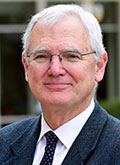 Once wars are underway, they tend to continue until the certain costs of continuing the war are seen as clearly much higher than the uncertain benefits of compromises to bring about peace. One or both sides have to believe that a politically meaningful military victory is impossible. Unfortunately, this usually means that all military options have to be exhausted before a real negotiation begins. Three examples from the cold war come to mind: (1) In 1986, Gorbachev gave the Soviet military one year to find a military solution in Afghanistan. When that failed, as he likely expected, he began negotiations to end the war. That took two years. (2) During the Korean War, by April 1951, after 10 months of bitter fighting, the military line stabilized at roughly the 38th Parallel, where the war began; neither side could do much to move the line significantly. Negotiations then began in earnest but it took two years to reach an armistice. (3) By December 1965, U.S. Defense Secretary Robert McNamara privately concluded that the U.S. could not win the war in Vietnam, but he continued in that office for two more years as the U.S. kept escalating, until by early 1968, the domestic political costs of continuing the war became too high. A provisional peace settlement was not reached until January, 1973.
Once wars are underway, they tend to continue until the certain costs of continuing the war are seen as clearly much higher than the uncertain benefits of compromises to bring about peace. One or both sides have to believe that a politically meaningful military victory is impossible. Unfortunately, this usually means that all military options have to be exhausted before a real negotiation begins. Three examples from the cold war come to mind: (1) In 1986, Gorbachev gave the Soviet military one year to find a military solution in Afghanistan. When that failed, as he likely expected, he began negotiations to end the war. That took two years. (2) During the Korean War, by April 1951, after 10 months of bitter fighting, the military line stabilized at roughly the 38th Parallel, where the war began; neither side could do much to move the line significantly. Negotiations then began in earnest but it took two years to reach an armistice. (3) By December 1965, U.S. Defense Secretary Robert McNamara privately concluded that the U.S. could not win the war in Vietnam, but he continued in that office for two more years as the U.S. kept escalating, until by early 1968, the domestic political costs of continuing the war became too high. A provisional peace settlement was not reached until January, 1973.
While this is a gloomy vision, perhaps it underscores the costs of delay in moving toward peace and relying unduly upon military instruments in advancing one’s security.
March 23, 2022
THE BATTLE FOR KYIV
Miller Center Senior Fellow Eric Edelman discusses the bitter fight on Sirius XM
March 22, 2022
CHINA'S NEW STRATEGIC OPPORTUNITY IN EUROPE
Miller Center Senior Fellow Brantly Womack writes that China has reasons not to side with either party in the conflict
 President Vladimir Putin’s historic blunder in Ukraine has created a crisis in Europe that is costly for China but at the same time opens for it an opportunity for a new role in global politics. The costs are real and will continue to grow as long as the Russian invasion and occupation of Ukraine continues. China’s tactical opportunity to contribute to mediation creates a strategic opportunity to move beyond the strategy of peaceful rise in a given international environment to one of providing key coordination in a post-hegemonic world.
President Vladimir Putin’s historic blunder in Ukraine has created a crisis in Europe that is costly for China but at the same time opens for it an opportunity for a new role in global politics. The costs are real and will continue to grow as long as the Russian invasion and occupation of Ukraine continues. China’s tactical opportunity to contribute to mediation creates a strategic opportunity to move beyond the strategy of peaceful rise in a given international environment to one of providing key coordination in a post-hegemonic world.
In 2002, then-President Jiang Zemin announced that China was facing a “strategic opportunity” brought about by multipolarisation and globalisation, an opportunity that would last for twenty years. China made good use of said opportunity, more than doubling its share of the global economy. But the 20-year window to which Jiang pointed also proved prescient. Both multipolarisation and globalisation appeared to be fading fast, and Putin’s invasion of Ukraine has closed that strategic opportunity. While China has vigorously criticised the “Cold War mentality” of the United States, Putin has returned Europe to familiar battle lines and battle cries.
The crisis will cost China dearly. More importantly, China has a vital interest in avoiding the slipping of Russia and Europe back into a Cold War configuration. However, China has reasons not to side with either party in the conflict. China cannot support Russia’s military invasion of a sovereign state or the response of comprehensive sanctions. Thus, China is interested in mediation, and its ties to both sides encourage that role. Moreover, successful involvement in resolving the crisis could position China well for a new strategic opportunity in a post-crisis environment.
March 21, 2022
WHERE DOES THE UKRAINE WAR GO FROM HERE?
UVA experts on war and terrorism assessed escalation scenarios during this Miller Center event
March 21, 2022
IS THE WAR IN UKRAINE THE FAULT OF THE WEST?
Miller Center Senior Fellow John M. Owen IV argues that many analysts are misdiagnosing what caused Putin to invade Ukraine
 A thesis is ricocheting around the world that the Russian war on Ukraine is really the fault of the United States and the West. I don’t mean the fable propagated by Russia that Ukraine is ruled by Nazis doing the bidding of the Americans. I mean the more measured, academically respectable claim that in attacking Ukraine, Russia is really only reacting to a sustained and misbegotten policy by the Western countries since the 1990s: the eastward expansion of NATO. The chief proponent of the “blame the West” thesis is John Mearsheimer, an A-list international relations scholar at the University of Chicago and the high priest of the school of thought called realism. Mearsheimer’s 2014 Foreign Affairs article “Why Ukraine Is the West’s Fault,” which followed hard on Russia’s annexation of Crimea, is enjoying countless hits. His video lecture of a similar title has nearly 22 million views as of this writing. In late January, Mearsheimer’s fellow A-lister, Harvard’s Stephen Walt, blamed the crisis on Western “hubris, wishful thinking, and liberal idealism.” (Full disclosure: Walt taught me in a graduate seminar many years ago, and both scholars are long-time mentors of mine.)
A thesis is ricocheting around the world that the Russian war on Ukraine is really the fault of the United States and the West. I don’t mean the fable propagated by Russia that Ukraine is ruled by Nazis doing the bidding of the Americans. I mean the more measured, academically respectable claim that in attacking Ukraine, Russia is really only reacting to a sustained and misbegotten policy by the Western countries since the 1990s: the eastward expansion of NATO. The chief proponent of the “blame the West” thesis is John Mearsheimer, an A-list international relations scholar at the University of Chicago and the high priest of the school of thought called realism. Mearsheimer’s 2014 Foreign Affairs article “Why Ukraine Is the West’s Fault,” which followed hard on Russia’s annexation of Crimea, is enjoying countless hits. His video lecture of a similar title has nearly 22 million views as of this writing. In late January, Mearsheimer’s fellow A-lister, Harvard’s Stephen Walt, blamed the crisis on Western “hubris, wishful thinking, and liberal idealism.” (Full disclosure: Walt taught me in a graduate seminar many years ago, and both scholars are long-time mentors of mine.)
Although Putin’s invasion of Ukraine certainly is a reaction to NATO expansion, it won’t do to say that the war is therefore the West’s fault. The flaw in the thinking of Mearsheimer, Walt, and other academic realists is that they present an inconsistent view of how international relations works. Mearsheimer, for example, is no more entitled to say that the West caused the war by expanding NATO than he is to say that Russia caused the West to expand NATO by being weak. A fuller explanation for the war takes into account the ideological differences between authoritarian Russia and the democratic West.
The argument of Walt, Mearsheimer, and many other academics goes like this: Geography makes Russia permanently vulnerable to invasion from the west, and indeed Western powers often have invaded it – most famously in 1812, when Napoleon’s armies made it to Moscow, and 1941, when Hitler’s troops ravaged vast territories and besieged Leningrad (now St. Petersburg). Today, the United States, at the head of NATO, is the threat. Since the collapse of the Soviet Union in 1991, NATO has taken in 14 members, all either former Soviet allies or republics within the Soviet Union itself: Poland, the Czech Republic, and Hungary in 1999; Estonia, Latvia, Lithuania, Slovakia, Romania, Bulgaria, and Slovenia in 2004; Croatia and Albania in 2009; Montenegro in 2017; and North Macedonia in 2020. And in 2008, then-President George W. Bush announced his “strong support” for membership for two more former Soviet republics: Georgia and, yes, Ukraine. In 2014, a revolution ousted Ukraine’s pro-Russian government and installed a pro-Western one in its place. All during these years, Russia has repeatedly and consistently warned that it would regard Ukraine’s membership in NATO as a dire threat to its security. Its 2014 invasion and annexation of Ukraine’s Crimea region made clear that Russia was not bluffing.
March 18, 2022
AMERICAN ECONOMIC POWER OVER RUSSIA
Miller Center Research Fellow Scott Miller explores the long-term financial implications of the war in Ukraine
 Over the past month, the United States and its Western allies have levied unprecedented sanctions on the Russian financial system. Excluding Russian banks from the SWIFT messaging system, freezing assets of Russian individuals and institutions, discouraging Western firms from doing business in Russia, and preventing the Bank of Russia from accessing hundreds of billions of dollars in reserves represent a remarkable display of financial power.
Over the past month, the United States and its Western allies have levied unprecedented sanctions on the Russian financial system. Excluding Russian banks from the SWIFT messaging system, freezing assets of Russian individuals and institutions, discouraging Western firms from doing business in Russia, and preventing the Bank of Russia from accessing hundreds of billions of dollars in reserves represent a remarkable display of financial power.
Yet Western nations must think long and hard about the strategic implications of this demonstration of economic might. American policymakers must concentrate on how they replenish and solidify their financial powerbase in the medium- and long-term while using it to combat Russia’s challenge to the rules-based global order.
It is understandable to focus on the rapid-fire events in Ukraine. However, wars are won over years, decades, and centuries. We must remain awake to the fact that American financial and economic power undergirds every element of American military and diplomatic prowess. If the world decides that America cannot or should not be trusted to anchor the global financial system, the liberal order of the post-WWII era will collapse very quickly.
If the world decides that America cannot or should not be trusted to anchor the global financial system, the liberal order of the post-WWII era will collapse very quickly
Recent years have seen an uptick in challenges to American financial dominance. Numerous countries have proposed replacing the dollar as the global reserve currency with a basket of currencies, possibly underwritten by the World Bank or IMF. China has begun building an interbank messaging system to rival SWIFT. That network remains small but is growing. Fossil fuel–producing nations have introduced the "petrodollar" to facilitate energy purchases outside the reach of the U.S. Treasury. Many cryptocurrencies are expressly designed to evade American regulations.
None of these by themselves will founder America’s role in global finance. Yet American policymakers should be aware how Western sanctions on Russia could supercharge competitors. The creation of this challenge will take time. But once begun in earnest, it will be difficult to stop.
To be very clear, I believe that the West has a moral duty to mobilize and consider using every resource at its disposal to push back against Russia’s unprovoked and brutal invasion of Ukraine. That said, if we believe that both the United States and the world benefits from American economic and financial hegemony, we must keep a clear eye on how to win both the tactical and broader strategic engagements.
Much of that begins at home. We must convince the world that it still benefits from granting American institutions such power over global finance and trade. Domestic political stability is a large part of that. American commitment to democracy and the rule of law must be strong.
This also means that the United States must do everything necessary to hold together the global economic system that makes its sanctions effective—including underwriting a trade regime that benefits not just developed nations, but the developing economies into which China is making significant investments.
India is another vital part of this puzzle. The United States must convince India that it is a more reliable long-term partner than its northern neighbor.
We must be judicious and strategic in how we deploy American financial muscle
It also means being judicious and strategic in how we deploy American financial muscle. The risk of continuously using sanctions as deterrence is that they eventually lose their shock value. If the “market” of disaffected nations is large enough, they will begin to build systems of finance and trade capable of circumventing American power.
Lastly, this means convincing allies that the United States has their interests a heart. The United States, the European Union, and Japan make up well over half of global GDP. Any challenge to American financial power would have to include a fracturing of the “western” alliance.
We should consider a Marshall Plan–like partnership to make Europe independent of Russian energy
To convince Europe that America remains committed to its well-being, we should consider a Marshall Plan–like partnership to make Europe independent of Russian energy. This could take many forms. One element could be offering to help finance liquified natural gas terminals across the continent. (Since American producers will likely benefit from these terminals, the financing should be offered on very generous terms.)
Of course, European nations are more than capable of developing these projects themselves, especially with rumors of a joint Euro-bond to finance energy independence and defense. However, the offer, and others like it, would signal our commitment to European well-being beyond the military and security sphere.
In sum, while working to punish and deter the Russian invasion of Ukraine, American and Western policymakers must recognize the threat inherent to their recent exercise of financial and economic power. The challenge resembles Greek tragedy—the exercise of power in the short-term risks being the very thing that could destroy it in the long-term. Policymakers must remember that preserving U.S. financial power, not just deploying it, is central to American long-term strategic interests.
March 18, 2022
RUSSIA'S GROWING INFLUENCE IN LATIN AMERICA
Are these relationships cause for concern? asks Miller Center Assistant Professor Cristina Lopez-Gottardi Chao
 In a surprising development, the administrations of U.S. President Joe Biden and Venezuela’s President Nicolas Maduro met recently to discuss what many assume to be Venezuela’s close relationship with Russia. They talked about the possibility of lifting U.S. oil sanctions, unleashing an alternative to Europe’s reliance on Russian oil supplies.
In a surprising development, the administrations of U.S. President Joe Biden and Venezuela’s President Nicolas Maduro met recently to discuss what many assume to be Venezuela’s close relationship with Russia. They talked about the possibility of lifting U.S. oil sanctions, unleashing an alternative to Europe’s reliance on Russian oil supplies.
What makes this move noteworthy is that the United States and Venezuela have not engaged diplomatically in the past four years.
Citing Venezuela’s 2018 election as fraudulent, the United States relinquished ties with the Maduro regime in 2019. Former President Trump is even said to have considered a possible U.S. military invasion in an effort to address regional security concerns. At the time, Trump also recognized Venezuelan opposition leader, Juan Guaido, as the country’s legitimate president.
Biden appears to benefit more politically from a continuation of Trump-era policies, even if not accompanied by the same degree of negative rhetoric
And in Biden’s first year in office, the president has done little to shift course on the South American country appearing to benefit more politically from a continuation of Trump-era policies, even if not accompanied by the same degree of negative rhetoric (recall former President Trump’s reference to Venezuela, Cuba, and Nicaragua as the “troika of tyranny”).
But this round of U.S.-Venezuela talks are fascinating, and an important development that appears to acknowledge America’s long neglect of its Latin American neighbors. This is also coming at a time when both Russia and China have been happy to fill this void and thus expand their spheres of influence.
In fact, today—in a dramatic shift from just a few decades ago—China is Latin America’s top trading partner, with massive investments in infrastructure throughout the continent as part of its Belt and Road Initiative. And by 2035, trade between China and the region is expected to grow exponentially to a whopping $700 billion.
Russian influence has also been on the rise via cooperative endeavors, including the sale of military equipment to Cuba, Venezuela, and Nicaragua, and broader political and diplomatic cooperation. In recent weeks, Russia’s outreach to Cuba, Venezuela, Nicaragua, and other regional neighbors has been particularly worrisome.
In fact, in a January meeting between U.S. and Russian representatives, Russia stoked fears reminiscent of the 1962 Cuban Missile Crisis when the Soviet Union placed ballistic missiles in Cuba, just 90 miles from Florida shores. At the time, Sergei Ryabkov, leader of the Russian delegation, said that “he could neither confirm nor exclude sending military assets to Cuba and Venezuela if talks fail.”
Asked about these steps, Ryabkov said, “It all depends on the actions by our U.S. counterparts.”
Just a few days after Russia’s attack on Ukraine, Cuba justified Russia’s incursion by expressing concern over "the progressive expansion of NATO toward the borders of the Russian Federation."
Cuba also specifically condemned the United States for what it viewed as undue American threats and manipulation of the international system. Days later, Russia agreed to postpone $2.3 billion in Cuban debt payments.
As the United States continues to navigate the rapidly shifting geopolitical landscape unleashed by Russia’s unprovoked war in Ukraine, the Biden administration should be sure to keep an eye on the southern portion of this hemisphere and to reignite U.S. commitments in the region.
After all, 1962 was not that long ago and developments we didn’t think possible in early February are now at least within the realm of possibility.
March 18, 2022
ZELENSKY SURRENDER HOAX
Miller Center Senior Fellow Danielle Citron talks with UVA Today about the future of "deepfakes"
 A “deepfake” video purportedly depicting Ukrainian President Volodymyr Zelensky calling on his forces to surrender to the Russian army circulated online Wednesday—including on Facebook, which later removed the misinformation.
A “deepfake” video purportedly depicting Ukrainian President Volodymyr Zelensky calling on his forces to surrender to the Russian army circulated online Wednesday—including on Facebook, which later removed the misinformation.
University of Virginia professors Danielle Citron, a Law School expert on deepfakes and digital privacy, and David Nemer, an assistant professor of media studies who researches online misinformation, talked to UVA Today about the future of malign actors using digital tools to create false impressions for their own ends, including the ill omen for democracies and their security.
Q. Is this the pivotal moment experts have been fearing for deepfakes?
Citron: Alas, yes. When Bobby Chesney [a professor at University of Texas, Austin] and I started writing about deepfakes in early 2018, the national security implications were largely hypothetical. Then, and now, the problem was very real in the case of deepfake sex videos, where mostly women’s faces were inserted into porn in a fairly realistic way. Chesney and I warned about the national security implications, but then we only saw glimmers of a well-timed, destructive fake. Now, we see our warnings coming to fruition. It is a bummer to say, “I told you so.”
March 18, 2022
LEADERSHIP DURING WARTIME
On his podcast, Miller Center Senior Fellow Eric Edelman draws parallels between Volodymyr Zelensky, Ronald Reagan, and Winston Churchill
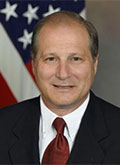 On this episode, British author and historian Andrew Roberts discusses his revisionist account of King George III and how a good man was nonetheless the monarch under whom the American colonies were lost.
On this episode, British author and historian Andrew Roberts discusses his revisionist account of King George III and how a good man was nonetheless the monarch under whom the American colonies were lost.
Edelman and his cohost Eliot Cohen discuss Roberts' new podcast, Secrets of Statecraft, the most important characteristics of leadership in wartime, and the how Ukrainian President Volodymyr Zelensky is similar to Churchill and Reagan.
They also talk about Vladimir Putin and the role of individuals in history. Shield of the Republic is co-sponsored by the Miller Center of Public Affairs at the University of Virginia.
March 17, 2022
HEALTH SECURITY IS NATIONAL SECURITY
Miller Center Associate Professor Guian McKee makes the case for why the pandemic preparedness bill matters in the struggle for Ukraine
 The unified Western response to Vladimir Putin’s war of aggression has generated a sense of palpable relief that the democratic world is still capable of determined, unified action. A glimmer of hope, perhaps more than a glimmer, has emerged that the liberal international order might yet hold.
The unified Western response to Vladimir Putin’s war of aggression has generated a sense of palpable relief that the democratic world is still capable of determined, unified action. A glimmer of hope, perhaps more than a glimmer, has emerged that the liberal international order might yet hold.
In the United States, however, the past week provided evidence that the deep dysfunction of democracy remains. Congress, inexcusably, has failed to take the minimum necessary steps to prepare for future stages of the COVID-19 pandemic. Although many on Capitol Hill seem not to recognize it, this is an urgent matter not only of public health but of national security.
During the final stages of the debate over the government spending bill (which itself is the product of a legislative branch that is now incapable of passing an actual budget), Congress stripped out the Biden administration’s request for $15.6 billion in funding for additional vaccines, tests, treatments, and other measures necessary to prepare for future COVID surges, or worse, dangerous new variants.
Most experts agree that even this request is only a part of what will be needed in the coming months, and it already represents a decrease from the administration’s original request for $22.5 billion.
Justifications for cutting the funding were crassly partisan: for Republicans, a newly rediscovered concern or fiscal responsibility, along with a continuing thread of pandemic denialism; for Democrats, opposition to funding the measure by retrenching money already committed to the states, mixed with a view that compromise is unacceptable.
The sum is that Congress acted with no attention to the medium-term (let alone the long-term) threats that the pandemic still poses. Instead, it chose to wave the (Ukrainian) flag while pretending that the current decline in cases marks the end of the pandemic.
A separate pandemic preparedness bill now stands before Congress, but its fate is at best uncertain.
In failing to fund measures to prepare for future stages of the pandemic while we have time, Congress is not only needlessly sacrificing the country’s most vulnerable citizens but is potentially jeopardizing the nation’s capacity to support Ukraine and check Vladimir Putin’s aggression.
Today, cases are rising in Europe. Wastewater testing shows an increased presence of the virus in approximately one-third of U.S. cities.
Today, cases are rising in Europe. Wastewater testing shows an increased presence of the virus in approximately one-third of U.S. cities. Even if Congress doesn’t care about serious illness and death among the elderly and immunocompromised, unchecked future waves of the pandemic will invariably harm the U.S. economy, exacerbate supply chain issues, further intensify inflation, and increase internal political divides. This limits our ability to stick to the economic sanctions against Russia and manage the wider costs of supporting Ukraine.
In a worst-case scenario, a vaccine-evasive variant could once again undermine the functioning of U.S. society and weaken our capacity to counter Russia in the months—and years—to come.
All of this is particularly tragic given that we really do have the capacity to manage the pandemic—if we fund and deploy the tools available.
The United States needs a reality check as we celebrate Ukrainian bravery and the revived Western alliance. Given that we are unwilling to engage Russia militarily, our strength—and our ability to respond effectively—lies in our economy and in our capacity to exert leadership in the democratic world. All of this depends on effectively moving into a new phase of pandemic management, which will be impossible without passage of the pandemic preparedness bill.
In order to prove that democracy can meet the challenges of this period, Congress needs to demonstrate that it can fulfill the basic responsibilities of governance. Maintaining a modicum of public health preparedness during a wartime pandemic is exactly such a test.
Congress should pass the pandemic preparedness bill. Until it does, we need to hold off on self-congratulation about the revival of the Western democratic order.
March 17, 2022
COULD PRICE CONTROLS BE BIDEN'S ANSWER TO INFLATION?
Miller Center Associate Professor Guian McKee explores in The Hill how public support for Ukraine could be influenced by high energy prices
 Analysis of the Russian attack on Ukraine has rightly focused on the strategic, military, and humanitarian considerations of the conflict itself. Very soon, however, domestic implications will begin to impinge on the geo-political. Maintaining public support will be critical as President Joe Biden and other democratic leaders around the world ask their citizens to sacrifice for the cause of countering Russian aggression in Ukraine.
Analysis of the Russian attack on Ukraine has rightly focused on the strategic, military, and humanitarian considerations of the conflict itself. Very soon, however, domestic implications will begin to impinge on the geo-political. Maintaining public support will be critical as President Joe Biden and other democratic leaders around the world ask their citizens to sacrifice for the cause of countering Russian aggression in Ukraine.
The pressing nature of this challenge is made obvious by the ban on Russian energy imports that President Biden announced on March 8. Cutting off the revenue that Russian oil and gas sales generate for the Kremlin is of clear strategic importance, but most analysts agree that it will raise gas and other energy prices for consumers. Such hikes will come on top of the existing inflation problem with which the Biden Administration has struggled for months.
To date, public enthusiasm for the Ukrainian cause has run high. If the conflict drags out through the spring and summer months, however, a real risk exists that high gas and other prices could undermine public support, thus weakening the Western position against Russia. Although blaming the president for high gas prices is not actually a rational position given the global nature of energy markets, the reality is that many Americans remain dependent on gasoline to do their jobs and meet their own families’ needs. Many have little economic cushion against such a rise in gas prices.
READ THE FULL ARTICLE IN THE HILL
March 17, 2022
ZELENSKY MAKES HIS PLEA TO CONGRESS FOR UKRAINE
Miller Center Senior Fellow Eric Edelman joins The Dispatch podcast to assess the current diplomatic and economic fallout from the war in Ukraine
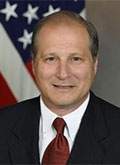 "On the military front, the Russians have not done very well—an astonishlingly poor performance," Edelman told host Steve Hayes. "Russia is teetering on the brink of default, because of the impact of the sanctions, which have been broader and deeper than Putin anticipated."
"On the military front, the Russians have not done very well—an astonishlingly poor performance," Edelman told host Steve Hayes. "Russia is teetering on the brink of default, because of the impact of the sanctions, which have been broader and deeper than Putin anticipated."
A member of the U.S. foreign service for 28 years who served as a U.S. ambassador, Edelman offers a unique perspective. Listen to him explore Ukraine President Volodymyr Zelensky’s address to Congress, plus the latest on the Iran deal.
March 16, 2022
WHAT'S GOING ON WITH CHINA AND RUSSIA?
Miller Center Senior Fellow Aynne Kokas explores the tension between the two nations
 As we enter the fourth week of the Ukraine conflict, the dynamic between China and Russia has shifted. The rise of the China-Russia alliance has been complicated by competing domestic interests in China.
As we enter the fourth week of the Ukraine conflict, the dynamic between China and Russia has shifted. The rise of the China-Russia alliance has been complicated by competing domestic interests in China.
Despite the Chinese government’s support for Russia and heavily controlled media, Chinese social media posts are not unified on the Ukraine question. New research led by Stanford’s Jennifer Pan has found mixed public opinion about the Ukraine conflict on Chinese social platforms. This suggests a softening of censorship of critical views of Russia, as well as domestic popular opinion pressuring Chinese leaders to contend with efforts to collaborate with Russia.
Reports have emerged of Russia asking China for weapons—a claim that the Chinese government has ardently denied. Asking for support from China demonstrates the rise of China’s military preeminence globally. Yet China’s rising stature, has little to do with its appetite for taking on the role of a global military actor on behalf of a foreign power at present.
The seven-hour meeting between White House National Security Advisor Jake Sullivan and China's top diplomat Yang Jiechi was about rebalancing Sino-U.S. relations in the longterm.
Further complicating China and Russia’s alliance “without limit” was the meeting between U.S. National Security Advisor Jake Sullivan and former Chinese Foreign Minister and Politburo member Yang Jiechi. It is difficult to know how effective the seven-hour Sullivan and Yang meeting was in rebalancing Sino-U.S. relations in the longterm. However, the fact that it occurred at all was a slap in the face to Russian President Vladimir Putin, following his new alliance with China's leader, Xi Jinping. While Russia is a valuable supplier of energy to China, its trade relationship with the United States is also essential for maintaining domestic economic growth.
Chinese Premier Li Keqiang just released a 5.5 percent growth target for 2022. China’s longterm trade interests through the Belt and Road Initiative, reliable supply chains, and its relationship with U.S. and European markets are all being impacted as the conflict continues to grow.
Further complicating the China-Russia alliance are the domestic challenges emerging in China, as it undergoes a major lockdown of its cities. More than 51 million people in China are under COVID restrictions. What this means in practice is that China’s efforts to protect its domestic economic growth (and related domestic stability) already face significant headwinds. It is unclear that China would even provide economic aid to Russia, beyond serving as a market willing to accept its goods.
While a robust China-Russia alliance would present significant long- and short-term challenges for liberal democracies around the world, such a challenge must first contend with China’s intense focus on maintaining domestic stability at home.
March 16, 2022
FIRST LADIES AND WAR
![Barbara Perry headshot]() Miller Center Director of Presidential Studies Barbara Perry writes about how presidential spouses long have fought the good fight
Miller Center Director of Presidential Studies Barbara Perry writes about how presidential spouses long have fought the good fight
How can first ladies, who are unelected and have no government authority, participate in a traditionally male arena of war? Such conflict is the epitome of “hard power,” exercised through military means. In contrast, first ladies typically have mastered “soft power,” marked by cultural exchanges and public diplomacy, which can be especially useful in wartime. But presidential spouses have gone beyond these symbolic roles to embrace substantive duties, too. Their historic efforts fall into the following octet of accomplishments.
READ THE FULL ARTICLE IN THE HILL
March 16, 2022
HOW AMERICANS CAN PROTECT AGAINST RUSSIAN CYBERATTACKS
![Kristen Eichensehr headshot]() Miller Center Senior Fellow Kristen Eichensehr, director of UVA's National Security Law Center, weighs in
Miller Center Senior Fellow Kristen Eichensehr, director of UVA's National Security Law Center, weighs in
What has the U.S. done since to shore up its defense? Miller Center Senior Fellow Kristen Eichensehr, a former special assistant to the legal advisor of the U.S. Department of State and current director of UVA’s National Security Law Center, said executive edicts have moved the nation to a stronger cybersecurity footing.
“In the wake of SolarWinds, the Biden administration issued an executive order that was aimed at better securing U.S. government systems, which makes sense because that’s what was ultimately compromised with SolarWinds,” said Eichensehr, a Martha Lubin Karsh and Bruce A. Karsh Bicentennial Professor of Law at the University of Virginia. “So that’s doing things to harden the defenses and make more U.S. government systems more resilient.
“In recent weeks, the Biden administration has been advocating that private sector entities look to that executive order for guidance on what they, too, should be doing. This is all in the spirit of hardening defenses, making attacks less likely to succeed and also making companies more resilient. Resilience means helping entities to come back online faster and to contain damage when things do happen.”
March 15, 2022![Todd Sechser headshot]()
'THERE ARE SOME GRAY AREAS'
Miller Center Senior Fellow Todd Sechser explores the likelihood of World War III
"This is the first time since the 1980s that we've had a real possibility of nuclear escalation with Russia," Sechser said. Watch the video from CBS19.
March 15, 2022
UPCOMING WEBINARS ON THE WAR IN UKRAINE
U.S. nuclear strategy in an era of great power competition
March 17, 2022; 6:30 to 7:30 p.m. ET
Admiral James Stavridis, former Supreme Allied Commander of the NATO alliance, discusses the role that nuclear weapons should play in American foreign policy in the 21st century.
This event is co-sponsored by UVA'S Miller Center of Public Affairs and the UVA Democracy Initiative Democratic Statecraft Lab.
Where does the Ukraine War go from here? Examining escalation scenarios
March 21, 2022; 11:00 a.m. to 12:00 p.m. ET
University of Virginia experts discuss where the war might be headed, what escalation might look like, and the possible effects of a protracted conflict.
This event is co-sponsored by UVA's Miller Center of Public Affairs, the Frank Batten School of Leadership and Public Policy, and UVA's National Security Policy Center.
Russian Aggression: What now? U.S. and NATO considerations
March 29, 2022; 1:30 p.m. to 2:30 p.m. ET
A panel of experts discusses what could happen next in Ukraine and Europe in the wake of Russia's profoundly destabilizing invasion. Panelists include Eric Edelman, former undersecretary of defense for policy; Stephen D. Mull, former U.S. ambassador to Poland; Evelyn Farkas, former deputy assistant secretary of defense for Russia/Ukraine/Eurasia; and Andrew Weiss, vice president of the Carnegie Endowment for International Peace.
This event is co-sponsored by UVA's Miller Center of Public Affairs and UVA Global.
March 15, 2022
FRENCH KING LOUIS XVIII VS. VLADIMIR PUTIN
Even before the Russian invasion of Ukraine last month, Miller Center Senior Fellow John Owen wrote in The Washington Post about the parallels with the 19th-century ruler
 While Russia’s invasion of Ukraine conjures up memories of the Cold War or other recent bouts of aggression, such as the Iraqi invasion of Kuwait in 1990, the most illustrative historical parallel is actually a forgotten episode from nearly 200 years ago.
While Russia’s invasion of Ukraine conjures up memories of the Cold War or other recent bouts of aggression, such as the Iraqi invasion of Kuwait in 1990, the most illustrative historical parallel is actually a forgotten episode from nearly 200 years ago.
In January 1823, not unlike today, a more powerful country ruled by an authoritarian leader deployed 100,000 troops to its border with a weaker neighbor governed by a liberal constitutional regime. But on that occasion, the countries were France and Spain. French King Louis XVIII worried that Spain’s liberal constitutional regime could bleed over into his country, putting his reign at risk.
Louis XVIII’s fears shed light on the current situation in Eastern Europe. Russia has demanded that NATO commit to never admitting Ukraine as a member, but the 1823 French invasion of Spain suggests that Russian President Vladimir Putin’s worries may be far deeper. He, too, may view a democratic neighbor as a threat to his regime and its international position.
READ THE FULL ARTICLE IN THE WASHINGTON POST
March 14, 2022
HOW TO END THE UKRAINE WAR
Miller Center Senior Fellow Allan Stam and Dan Reiter of Emory University assess plausible exit ramps for Putin and Zelensky
 The current war in Ukraine looks as intractable as it is horrifying. It is hard to see possible exit ramps for Vladimir Putin or politically viable concessions for Volodymyr Zelensky. Many military analysts envision the war lasting several months, if not years into the future. That grim forecast is easy to anticipate.
The current war in Ukraine looks as intractable as it is horrifying. It is hard to see possible exit ramps for Vladimir Putin or politically viable concessions for Volodymyr Zelensky. Many military analysts envision the war lasting several months, if not years into the future. That grim forecast is easy to anticipate.
 Following Putin’s playbook from the Chechen Civil Wars, Russia might pound Ukraine into submission. While Russian losses over the past two weeks have exceeded prewar estimates, Russia retains the ability to destroy Ukrainian ground targets with missile, artillery, and aerial attacks. Combined with the remaining mass of the active Russian army, potential mobilization of reserve forces, the Russian ability to learn from its military mistakes slowly, and the unwillingness of NATO to deploy troops or airpower, Russia still can conquer Ukrainian cities. In this long war, Ukrainians might revert to guerrilla warfare as the Afghans did in the 1980s, but the conventional phase of the war will end most likely with the complete destruction of Ukraine’s cities.
Following Putin’s playbook from the Chechen Civil Wars, Russia might pound Ukraine into submission. While Russian losses over the past two weeks have exceeded prewar estimates, Russia retains the ability to destroy Ukrainian ground targets with missile, artillery, and aerial attacks. Combined with the remaining mass of the active Russian army, potential mobilization of reserve forces, the Russian ability to learn from its military mistakes slowly, and the unwillingness of NATO to deploy troops or airpower, Russia still can conquer Ukrainian cities. In this long war, Ukrainians might revert to guerrilla warfare as the Afghans did in the 1980s, but the conventional phase of the war will end most likely with the complete destruction of Ukraine’s cities.
Any victory for the Russians of this type would be a pyrrhic one with spectacular attendant costs, as Russians are cruelly beginning to learn. It is difficult to exaggerate the mounting economic crises, short, medium, and long term, Russians face. Russia is days away from defaulting on its foreign debt obligations for the first time since 1918. The Russian ruble and stock market have crashed. Western companies, including oil companies critical for extracting Russian oil and gas reserves, are leaving Russia.
Moreover, it is difficult to see the ongoing war as anything but an unmitigated disaster for Russian foreign policy interests. Hell may not have frozen over, but several national policy shifts are occurring that seemed unlikely if not impossible just weeks ago. NATO has become united. Finland and Sweden are seriously contemplating joining NATO. Germany is rearming with the support of its neighbors. American isolationists are now sidelined. China is backing away from Russia. The Russian military is being humiliated and heavily degraded.
Alternatively, a better future does exist. Ukraine and Russia could try to find a fig leaf just big enough for Putin to declare victory and go home and for Zelensky to retain his presidency. For Putin, the staggering costs of the war are becoming undeniable, whereas just two weeks ago, he believed that speedy victory was at hand. The Ukrainian government knows now that there will not be much of Ukraine left to save in a few weeks. With these facts about the war now clear, the two leaders might be able to find room to bargain.
Ukraine can promise to give Crimea access to water. It can promise not to join NATO. It can promise to continue to permit the transmission of Russian gas through its territory. Russia can withdraw its troops and promise to respect Ukrainian borders, abandoning its recognition of the Donetsk and Luhansk enclaves, if not Crimea. Both parties could agree to an UN-administered plebiscite over the future of these contested regions. Such a deal though painful to all sides, is not inconceivable. The two sides are at least talking, as of Monday, March 14.
Many are concerned that Putin might be unwilling to end the war because he fears falling from power. While that risk is real, one of the advantages of dictatorship is the ability to crush internal threats to power, as Putin has done and is doing, even in the face of foreign policy failures. Indeed, Saddam Hussein used brute force to remain in power for several years even after initiating two disastrous wars. This is one reason dictators like Putin are more likely to start risky wars they will lose.
However, we should not assume that Putin would honor commitments to create a war-ending deal. Soviet, Russian, and other leaders have frequently broken peace deals, echoing that other Vladimir’s (Lenin) remark, stolen from Swift, that “promises are like pie crust, made to be broken.” Putin has already flouted the 1994 Budapest Memorandum where Russia formally agreed to respect Ukrainian borders and sovereignty, never mind his decision to break the 1987 Intermediate-Range Forces Treaty and other agreements.
But here’s why Ukraine and the West should accept even a bad deal if it includes the withdrawal of Russian forces from Ukraine. It would stop the tremendous human suffering in Ukraine and reduce the risk of nuclear war in Europe from small to zero. Further, the West can act after a ceasefire to make the deal more stable, even without inviting Ukraine to join NATO or stationing US troops there. We can pour reconstruction funds into Ukraine and provide very substantial military aid. Ukraine’s prewar population is an estimable 44 million people, and a postwar Ukraine could be something like South Korea or Israel, constantly mobilized for war and armed to the teeth. Going forward, Putin might just decide to leave alone such a bristling Ukrainian porcupine.
Will this all work? We do not know. But it’s worth a try.
March 14, 2022
BIDEN AND PUTIN: PATIENCE AND RESOLVE
Miller Center Director and CEO William Antholis takes stock of Russia's invasion of Ukraine
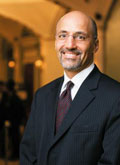 By all accounts, Russian President Vladimir Putin conceived of and is the driving force behind Russia’s invasion of Ukraine. That means that, for good or bad, this will be a central crisis for President Joe Biden – in competition with the pandemic, economic shocks, and the deep polarization that has divided America. Putin’s rash move is obviously about much more than the relationship between him and Biden. Yet each man’s assessment of the other was essential to Putin’s decision to go to war. Their actions and relationship will shape how the war moves forward, how it ends, and what comes next.
By all accounts, Russian President Vladimir Putin conceived of and is the driving force behind Russia’s invasion of Ukraine. That means that, for good or bad, this will be a central crisis for President Joe Biden – in competition with the pandemic, economic shocks, and the deep polarization that has divided America. Putin’s rash move is obviously about much more than the relationship between him and Biden. Yet each man’s assessment of the other was essential to Putin’s decision to go to war. Their actions and relationship will shape how the war moves forward, how it ends, and what comes next.
As we approach the war’s three-week mark, it is worth taking stock of how all this is going. This essay argues that Putin feared the growing power of Western economic and cultural systems while badly misperceiving the strength of Western political leaders and institutions – particularly Joe Biden. In scoping out possible scenarios forward, it is tempting to work backwards from a hoped-for end game of Putin having to settle for an outcome short of victory. As Putin’s war effort has gone badly, Biden, his team and the West now appear to have an upper hand. It will require ongoing support for Ukraine and patience to grind Putin to a tacit admission that his effort has failed.
And yet the challenge of thinking about an end game is that Putin will continue to be tempted to escalate the war, even if he is seeking a way out.
March 14, 2022
'ALL WARS END'
UVA Russia expert Allen Lynch outlines how the Russian invasion of Ukraine might end
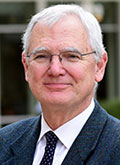 Defense scholar Fred Ikle famously noted that “all wars end.” Moreover, they almost always end via negotiations and not the physical annihilation of the adversary. Even the “unconditional surrender” of Japan in August 1945 was conditioned upon U.S. assurances that Emperor Hirohito would stay on his throne, thereby saving millions of Japanese (and likely hundreds of thousands of American) lives. With the Russian war in Ukraine now in its third week, certain conclusions can be drawn with a high degree of confidence:
Defense scholar Fred Ikle famously noted that “all wars end.” Moreover, they almost always end via negotiations and not the physical annihilation of the adversary. Even the “unconditional surrender” of Japan in August 1945 was conditioned upon U.S. assurances that Emperor Hirohito would stay on his throne, thereby saving millions of Japanese (and likely hundreds of thousands of American) lives. With the Russian war in Ukraine now in its third week, certain conclusions can be drawn with a high degree of confidence:
- The Russian leadership was unprepared for a war of this intensity. Putin expected that a show of force would induce the Ukrainians to capitulate and allow him to install a Quisling government that would formalize Ukraine’s status as a Russian vassal state. Instead, Putin has discovered that Ukraine is a real nation and that it will not accept rule from Moscow, directly or indirectly.
- Russia has the capacity to destroy almost anything that it wants in Ukraine, but it does not have the capacity to end Ukrainian military resistance, not to mention occupy and govern Ukraine. With fewer than 200,000 Russian troops of all kinds currently deployed (in a country the size of France, with 44 million people), there is relative parity on the battlefield, whereas historically, decisive offensive operations require a superiority on the order of 4:1 or more.
- With Ukraine having a roughly 900-mile land border with four NATO countries (Poland, Slovakia, Hungary, and Romania) in the mountainous west, it is unlikely that Russia would be able to seal off that border from the delivery of powerful anti-aircraft and anti-tank weapons that have to date wreaked havoc with Russia’s military plans.
- The longer the war goes on, the harder it will be for Putin to disguise the true nature of the war and its costs from the Russian people, who in fact tend toward pacifism; that is why Russian censorship is so strict. But you can’t censor thousands of burials of sons.
- On the Ukrainian side, the European Union on March 10 rejected membership for Ukraine anytime soon and the nature of the Western commitment to Ukraine, impressive as it is, underscores that Ukraine will not be joining NATO either. President Biden’s pre-war declaration that the U.S. will not risk a direct war with Russia over Ukraine by sending troops, or now by trying to enforce a no-fly zone over Ukraine (affirmed by NATO on March 4), prove that Ukraine’s security future was never a vital interest for the United States or NATO in the way that it is for Russia.
- The Ukrainian military, with prolonged military aid from NATO countries, may be able to avoid defeat but it cannot impose defeat upon a determined Russia, which is actually advancing steadily if clumsily in the south and northeast of Ukraine
March 14, 2022
WHY WE CAN'T DISCONNECT RUSSIA FROM THE INTERNET
UVA Law School Professor Thomas Nachbar writes in Bloomberg Law that ICANN protects Russia's access
 While the rest of the world is busy sanctioning Russia, there’s one sphere where the country’s interests appear to be safe: the internet.
While the rest of the world is busy sanctioning Russia, there’s one sphere where the country’s interests appear to be safe: the internet.
Russia’s prowess in using the internet to conduct information operations is world-renowned. Like removing Russia from the SWIFT financial system, a ban from the internet could both serve as a sanction and deny Russia a means for prosecuting the war. Mykhailo Fedorov, Ukraine’s viceprime minister, made just such a request on March 2.
So why aren’t world leaders talking about how to remove Russia from the internet?
The short answer is that they can’t.
March 13, 2022
CHINA'S UKRAINE CONUNDRUM
Miller Center Senior Fellow Evan Feigenbaum, an expert on China, writes that China aims to avoid being dragged too directly into a conflict between Russia and the West
 This week on the Sinica Podcast, Kaiser chats with Evan Feigenbaum, vice president for studies at the Carnegie Endowment for International Peace, former vice-chairman of the Paulson Institute, and (during the second George W. Bush administration), Deputy Assistant Secretary of State for South and Central Asian Affairs under Condoleezza Rice.
This week on the Sinica Podcast, Kaiser chats with Evan Feigenbaum, vice president for studies at the Carnegie Endowment for International Peace, former vice-chairman of the Paulson Institute, and (during the second George W. Bush administration), Deputy Assistant Secretary of State for South and Central Asian Affairs under Condoleezza Rice.
Evan offers a very compelling analysis of the difficult position that Beijing now finds itself in after Putin’s invasion of Ukraine — caught on the horns of a dilemma and unable to resolve conflicting commitments to, on the one hand, territorial sovereignty and, on the other, opposition to American unipolar hegemony. Meanwhile, Beijing is fearful of the repercussions of siding with Russia, fearing that sanctions may have a real bite.
Evan also shares his thoughts on how China and Russia differ significantly in their posture toward the “rules-based international order,” on misguided thinking about Taiwan and the “strategic triangle,” and on the reshaping of the geopolitical and geoeconomic order that the Russian invasion of Ukraine will usher in.
March 11, 2022
RUSSIA HAS A HISTORY OF NOT RESPECTING HUMANITARIAN CORRIDORS
Batten School Professor Kirsten Gelsdorf writes in The Conversation that these corridors can expose fleeing civilians to greater danger
 As Russia continues to target houses, apartment buildings, hospitals and civilians in Ukraine, there are mounting calls from international aid groups to safely evacuate and protect Ukrainians caught in the war.
As Russia continues to target houses, apartment buildings, hospitals and civilians in Ukraine, there are mounting calls from international aid groups to safely evacuate and protect Ukrainians caught in the war.
Simultaneously, rising numbers of people still in Ukraine are in desperate need of food, medical supplies, water and other lifesaving materials.
Russia and Ukraine have discussed what are called “humanitarian corridors” during negotiations. These are meant to allow civilians trapped in dangerous cities to leave, with the assurance that they will be safe while evacuating. They are also often used to ensure the safety of aid workers and conveys delivering aid.
An estimated 35,000 Ukrainians were evacuated through such pathways on March 9, 2022, alone, according to Ukrainian President Vlodymyr Zelenskyy.
But these corridors remain unreliable transit points in Ukraine. Russia has repeatedly attacked civilians traveling these routes.
March 10, 2022
IS VLADIMIR PUTIN A RATIONAL ACTOR?
Miller Center Senior Fellow Dale Copeland considers what might have motivated Putin to attack Ukraine
 There has been much discussion since Russia’s invasion of Ukraine as to whether Vladimir Putin should be considered a rational actor, given his brutal assault on Ukraine and his apparent unwillingness to recognize the high costs the invasion has already imposed on both his military and his nation. This issue matters a great deal as the West considers options that could end the tragedy by giving Putin a negotiated way out of the debacle. Indeed, if Putin is not rational, and does not see that the costs and risks of this war are far larger than any benefits, some analysts believe he might escalate the war beyond Ukraine in a desperate attempt to salvage something from a campaign that has not gone the way he expected. This could mean a direct clash with NATO, and the potential use of nuclear weapons.
There has been much discussion since Russia’s invasion of Ukraine as to whether Vladimir Putin should be considered a rational actor, given his brutal assault on Ukraine and his apparent unwillingness to recognize the high costs the invasion has already imposed on both his military and his nation. This issue matters a great deal as the West considers options that could end the tragedy by giving Putin a negotiated way out of the debacle. Indeed, if Putin is not rational, and does not see that the costs and risks of this war are far larger than any benefits, some analysts believe he might escalate the war beyond Ukraine in a desperate attempt to salvage something from a campaign that has not gone the way he expected. This could mean a direct clash with NATO, and the potential use of nuclear weapons.
Yet the assessment of any leader’s level of rationality, especially in moments when his or her decisions are going badly, is much more difficult than it seems. First, there is the question of time frame: Are we talking about the rationality a leader displays in the decision-making leading up to an action or the rationality of decision-making once it is clear that the costs and risks are turning out to be much higher than any benefits? Truly rational actors accept when things are not going as expected, and then adjust to the new reality. Here it does seem that Putin’s refusal to negotiate even a ceasefire, let alone a withdrawal based on a Ukrainian agreement not to join NATO, reflects his inability to see the long-term implications of a continued fight.
The separate question of whether he was rational to attack Ukraine in the first place could go either way. International relations experts emphasize that we must look at “the information available at the time” and avoid Monday morning quarterbacking. Some of these experts have argued recently that given the West’s weak response to Russia’s 2008 invasion of Georgia and its 2014 annexation of Crimea, Putin had reason to believe that any sanctions by the West this time would again be mostly slaps on the wrist. In the face of Ukraine’s stated desire to join NATO and align with the European Union, Putin had reason to believe not only that Russia must act sooner rather than later to stop additional NATO expansion, but that Russia’s military would quickly be able to control the country and install a pro-Russian puppet that would reorient Ukraine toward the east.
March 10, 2022
PUTIN—THE NEWEST FIVE-LETTER WORD
Miller Center Professor Russell Riley suggests adding a new profanity to the lexicon
 Trump, COVID, Putin: Five-letter words are the new four-letter word. (Those objecting to Trump’s inclusion here are free to substitute the current president’s name instead—merely confirming the point.)
Trump, COVID, Putin: Five-letter words are the new four-letter word. (Those objecting to Trump’s inclusion here are free to substitute the current president’s name instead—merely confirming the point.)
Whether or not one formally subscribes to televangelist Pat Robertson’s interpretation that the Russian invasion of Ukraine is evidence that the Book of Revelation is unfolding before our very eyes, there is an undeniable End of Times feel to the daily newspapers—causing most of us to mutter inventive forms of profanity each time we check the headlines. Scatology recapitulates eschatology.
Between my junior and senior years in high school, I spent a month with a group of international students on a bus touring the American South for a program sponsored by Lion’s Club International. The purpose was to foster transcultural exchange. Our lot being made up entirely of teenage boys, however, we first fulfilled our obligation by learning each other’s dirty words. In short order we could all curse in Danish, Hebrew, French, Portuguese, Spanish, German, English, and more. But the go-to obscenity that summer, echoing down the center aisle whenever a soft drink got spilled or a hand of cards went awry, was a common Italian vulgarity, literally for “prostitute,” but with cruder connotations depending on its utterance. Decorum prevents me from repeating it here, but suffice it to say that in print it looks an awful lot like “Putin.”
That expletive had collected dust in my memory for decades—until last week. My juvenile mind now refreshed, it will, inescapably, be what I hear whenever someone mentions to me the man who ordered troops unprovoked into Ukraine.
March 9, 2022
DISTANT ALLIES: CHINA AND RUSSIA
Miller Center Senior Fellow Aynne Kokas, an expert on China, ponders the reality of the China-Russia alliance
 International relations scholars pay close attention to the relationship between China and Russia, particularly China's reluctance to condemn Russian actions in Ukraine. China's international relations doctrine focuses on maintaining territorial sovereignty, a tenet violated in Russia's Ukraine attack. China and Russia have a clear interest in allying across various issues, from technical standards to pushing back against human rights sanctions from Western democracies. However, they are unlikely – and not credible - partners in the era still mired in the politics of COVID-19.
International relations scholars pay close attention to the relationship between China and Russia, particularly China's reluctance to condemn Russian actions in Ukraine. China's international relations doctrine focuses on maintaining territorial sovereignty, a tenet violated in Russia's Ukraine attack. China and Russia have a clear interest in allying across various issues, from technical standards to pushing back against human rights sanctions from Western democracies. However, they are unlikely – and not credible - partners in the era still mired in the politics of COVID-19.
The two countries have taken radically different approaches to manage COVID-19. At the pandemic's start, the two countries were competing in vaccine markets to distribute the Sinovac and the Sputnik V vaccines. China, for its part, had exported roughly seven times as many vaccines as Russia had made in total as of September 2021.
Russia and China released a joint statement on February 4 on the occasion of the Beijing Olympics Opening Ceremonies. They asserted their cooperation in the "new era," a term often used to refer to Xi Jinping's reign over China. Despite this renewed statement of cooperation, no effort has been made on China's part to improve cross-border movement between the two countries. China's “Zero COVID” policy requires a three- to five-week quarantine for entering the country, depending on exposure and symptoms. Russia's vaccination rate is 50 percent compared to China's 87.4 percent rate.
Trade between the two countries offers a valuable buffer to Russia. China can serve as a market for Russia's energy amidst sanctions. It can serve as a trade destination for goods that European and American economic sanctions might otherwise constrain. Large-scale trading with China provides a lucrative financial buffer for Russia. However, China's continued Zero COVID strategy means that travel between the two countries and any trade it may enable is off the table for the near- to medium-term. How is it possible to be close allies at such a distance?
March 9, 2022
THE ATTACK ON UKRAINE: WHY IT MATTERS
Miller Center Senior Fellow Stephen D. Mull discussed the global effects of Russia's invasion at a UVA Office of Engagement event
March 8, 2022
Q&A: HOW THE WEST IS WORKING TO AVOID WORLD WAR III
Miller Center Senior Fellow Stephen D. Mull talks with UVA Today about what might come next in Ukraine
 Tuesday’s decision by the United States to ban imports of oil and natural gas from Russia represents the latest ratcheting of sanctions designed to pressure and punish Vladimir Putin for his country’s military assault on neighboring Ukraine.
Tuesday’s decision by the United States to ban imports of oil and natural gas from Russia represents the latest ratcheting of sanctions designed to pressure and punish Vladimir Putin for his country’s military assault on neighboring Ukraine.
Allies of Ukraine have continued using diplomatic tools to isolate Russia economically and politically in an effort to stop the violence. Though they have supplied weapons and technology to help Ukraine resist the Russian invasion, the U.S. and other nations have not granted Ukraine’s plea to provide a secure air space, which would likely spark direct military confrontation between Russia and the West.
To find out why and to explore what might come next, UVA Today checked in with UVA Vice President for Global Affairs Stephen Mull, former acting undersecretary for political affairs at the U.S. Department of State and former U.S. ambassador to Poland and to Lithuania.
March 8, 2022
UKRAINE AND THE FUTURE OF WAR CRIMES
UVA Law School Professor Thomas Nachbar explains that holding Russia accountable for war crimes will not be easy
 Many have recently highlighted the possibility that Russia may be committing war crimes in Ukraine. The United States has gone so far as to announce that is collecting evidence of potential war crimes.
Many have recently highlighted the possibility that Russia may be committing war crimes in Ukraine. The United States has gone so far as to announce that is collecting evidence of potential war crimes.
But whether Russia is ever held to account for these crimes depends in part on the actions of the Ukrainian government, in more ways than one.
Commentators note that Russian officials are unlikely to ever be held personally accountable for war crimes. Russia, like the United States, is not a party to the Rome Statute of the International Criminal Court, and as a permanent member of the UN Security Council, it is unlikely to be referred to either the ICC or an ad hoc tribunal, as happened in the wars in Yugoslavia and Rwanda. Many nations have domestic laws with universal jurisdiction that might apply to conduct in Ukraine, but the practical difficulties of arresting and trying Russian leaders make this unlikely, too.
Yet there are other forms of accountability, and the war in Ukraine might provide a lamentable laboratory for the development of the law of armed conflict.
The war in Ukraine is a particularly high-profile example of a decreasingly frequent event: a conflict governed by Common Article 2 of the 1949 Geneva Conventions. That is, it is a war between two or more states, all of whom are parties to the Geneva Conventions. Most of the wars over the past two decades have either been what American military doctrine calls “irregular wars” — that is, wars between states and nonstate actors, like al-Qaida and ISIS — or mixed conflicts that feature both state and non-state actors.
In Common Article 2 conflicts, different and clearer rules apply than in irregular wars, which makes it comparatively easier to determine if there’s been an actual war crime.
Whether things remain so clear, though, depends in part on Ukraine.
If nonstate actors — such as informal insurgent groups — start taking part in the conflict, the war will become a mixed one, and it will be comparatively hard to determine which rules apply in which circumstances. There is already some complexity here, as the Russians claim they are supporting nonstate separatists in the Donbas region of eastern Ukraine. But outside of that area, the most likely irregular forces would be Ukrainian. The Ukrainian government has a say over whether those forces satisfy Article 4 of the Third Geneva Convention (and consequently how they are categorized under the Geneva Conventions). Tactical considerations are likely to receive greater weight than legalistic ones, but this is something the Ukrainians should keep in mind when organizing their resistance.
The law of armed conflict also imposes an obligation on combatants to not only distinguish between military and civilian targets, called "offensive distinction," but also to distinguish their own forces from civilians, known as "defensive distinction." Russian bombardment of cities is a violation of offensive distinction if Russia fails to distinguish between military and civilian targets, but strikes in populated areas have been a necessary part of many irregular conflicts because irregular forces so frequently fail to engage in defensive distinction. For example, ISIS’ common practice of hiding among civilians and using human shields is a failure of defensive distinction — a war crime. The Ukrainians, by keeping their military forces distinct, can remove the cloud of doubt that shrouds so many inquiries into civilian casualties. Defensive distinction is costly, but not only is it a legal obligation, it enables accountability by making offensive distinction violations all the more clear.
In a world with more cell phones than people, the potential to document war crimes has never been greater. That evidence can go a long way toward holding individuals and nations accountable through formal mechanisms, like trials or international sanctions, and it can develop the law of war crimes itself. It is too soon to tell how much the war in Ukraine will shape the development of the law of armed conflict, but given the highly sophisticated media environment in Ukraine, combined with the clarity of Russia’s actions, it’s hard to imagine that it won’t affect the law of armed conflict in some profound ways.
Ukraine has rightly united the world behind its cause. The shape and durability of this moment of unity depends not only on how Russia conducts the war, but also on how Ukraine does.
March 8, 2022
THE IMPLICATIONS OF RUSSIA'S INVASION OF UKRAINE
The Miller Center's John M. Owen IV and Barbara Perry discuss the crisis on The Public Morality radio program
March 8, 2022
WE MUST PREPARE FOR THE SYSTEMIC COLLAPSE OF THE RUSSIAN ECONOMY
Miller Center Research Fellow Scott Miller anticipates what might come next for Russia
 Over the past few days, observers have begun to forecast the results of Western sanctions on the Russian economy. In short, we are likely watching the collapse of Russia’s economic system. The savage nature of Putin’s unprovoked invasion of Ukraine has drawn much of the media oxygen, but the severity of a possible collapse should put Western observers on alert. Crises on this scale produce profound societal volatility and often result in spillovers that few see coming.
Over the past few days, observers have begun to forecast the results of Western sanctions on the Russian economy. In short, we are likely watching the collapse of Russia’s economic system. The savage nature of Putin’s unprovoked invasion of Ukraine has drawn much of the media oxygen, but the severity of a possible collapse should put Western observers on alert. Crises on this scale produce profound societal volatility and often result in spillovers that few see coming.
Russia is no stranger to episodes of economic distress. Its 2014 proxy occupation of Donetsk and Luhansk resulted in a significant depreciation of the ruble against the dollar, stock market crashes, and negative economic growth for the first time since the global financial crisis of 2008-09 (GFC). Alongside most of the developed world, the GFC caused a dramatic contraction of GDP growth in Russia, from approximately 6 percent in 2008 to -8 percent in 2009.
More important, however, the Russian debt default and crisis of 1998 erased all hopes of a smooth transition to a liberal market order. Real output declined by 4.9 percent as Russian stock, bond, and currency markets collapsed in August and September of 1998. The Russian government stopped meeting its domestic debt obligations as well. After depleting its foreign exchange reserves in an attempt to defend its exchange rate peg of approximately 5 rubles/1 USD, the Bank of Russia allowed the ruble to float. The ruble/dollar exchange rate rose to approximately 30 to 1 in September of 1999, causing prices to rise 92.6 percent in 1999 and then 20.9 percent the following year.
The impending crisis is likely to make these previous events look miniscule by comparison. Robin Brooks and Elina Ribakova of the Institute of International Finance estimate a 15 percent contraction in Russian GDP in 2022. By comparison, U.S. GDP contracted by just 3.5 percent in 2020, when we intentionally shut down the economy to deal with the COVD-19 pandemic. The U.S. economy shrunk just 2.5 percent in 2009 at the height of the Great Recession. The Russian oligarch Oleg Deripaska, himself sanctioned for his connections to the Kremlin, on Sunday suggested, “This is going to be like [the] 1998 crisis but three times worse and will last three years.”
Deripaska’s prognostication stands out because while Russia has faced numerous crises in the past two decades, they have been short-lived. Growth returned to 4-5 percent in 2010 and over 6 percent in 1999. The brief nature of these contractions made them painful yet manageable.
So why would the impending crisis last for so long? The nature of recovery in 1999 is instructive. The collapse of the ruble made Russian exports much less expensive to foreign buyers, resulting in an inflow of foreign exchange and boosting tax revenue for the Russian state. A budget surplus, increasing ForEx reserves, and rising prices for Russian commodity exports soothed investors. Net capital inflows remained positive despite the credit crisis and sovereign default. In short, the crisis stunned the Russian economy but it was able to quickly resume its export-based growth pattern because the broader global market structure had not changed.
The present circumstances could not be more different. The depreciation of the ruble will not result in an increase of Russian exports because Western governments have sanctioned many of the largest Russian firms. Even if the opportunity for robust trade existed, central bank sanctions have cut off potential dollar and euro flows. As a result, the Russian government has few prospects for a restoration of its balance sheet. A slow-rolling sovereign debt default has made Russian bonds virtually uninvestable. Furthermore, capital controls (imposed to stem hemorrhaging private capital stocks) have cut the Russian economy off from the foreign direct investment that it desperately needs. In sum, the mechanisms that paved the way for Russian recoveries from previous crises are and will not be available in the near future.
The highly volatile nature of economic crises makes current circumstances even more dangerous. Economic and social volatility feed on each other, often producing a combustible atmosphere. Tensions will grow as Putin tightens his grip on Russian society amidst worsening economic conditions. Put another way, economic crises are difficult enough to deal with in times of relative social and political stability. Policy makers can focus on the crisis itself and do not face added volatility from military defeats, riots, coups, or external threats. Russia is facing the potential of all of these.
The economic headwinds facing the Russian economy are unprecedented, but that is not the half of their problems. Economic crises that take place amidst social disruption often erupt into a self-perpetuating firestorm of civic unrest and economic collapse. I hope that Russia can avoid this, but I would not count on it.
March 7, 2022
THE GLOBAL RIPPLE EFFECTS OF RUSSIA'S ATTACK ON UKRAINE
Miller Center Senior Fellow Stephen D. Mull discussed implications for international security and diplomacy at a Batten School event
March 7, 2022
WHAT THE WAR IN UKRAINE TELLS US ABOUT U.S. TECH FIRMS
Miller Center Senior Fellow Aynne Kokas, an expert on China, reflects on the autonomy of U.S. corporations
 When tech entrepreneur Elon Musk enabled his Skylink satellite internet service in Ukraine, Ukrainian officials hailed him as a hero. But as a “free speech absolutist” he also noted he would not close off access to Russian state-run news sources, a well-documented source of disinformation about the war. Meanwhile, Apple paused product sales in Russia and has limited the use of Apple Pay and other services.
When tech entrepreneur Elon Musk enabled his Skylink satellite internet service in Ukraine, Ukrainian officials hailed him as a hero. But as a “free speech absolutist” he also noted he would not close off access to Russian state-run news sources, a well-documented source of disinformation about the war. Meanwhile, Apple paused product sales in Russia and has limited the use of Apple Pay and other services.
Musk has had a checkered track record in business dealings with authoritarian states, choosing to share advanced autonomous vehicle data with Chinese government servers, for example. Similarly, Apple established data-sharing joint ventures with Chinese government agencies for its iCloud servers in China to protect its access to the market. With the Ukraine conflict, the U.S. tech sector has solidified its role as an unpredictable, independent geopolitical actor that has the potential to advance or sink U.S. foreign policy objectives.
Seeing such corporate decision-making unfurl in real time during the Ukraine conflict has wide-ranging implications not just in the current moment. What we see in this conflict are examples of how U.S. corporate autonomy plays out relative to a battle with a country where U.S. corporations have substantial business interests. Divergent corporate decision-making allows us to observe how the market-based system in the U.S. might operate in a conflict with China, where economic exposure by U.S. corporations is much higher.
One of the strengths of the U.S. economy is the autonomy that corporations enjoy in building global markets while raising capital domestically in the U.S. Unlike firms in China, U.S. corporations have the option to choose how and when they engage in the conflict in Russia. However, what this also means is that, as in the case of Musk’s decision to expand the reach of Russian disinformation and Apple’s decision to limit – but not end – its engagement in Russia, we are also seeing a preview of how tech companies with much more extensive exposure to China might respond to conflict between the United States and China. The answer suggests a very high bar for imposing any significant consequences that might endanger the firms’ profitability in a key market.
March 7, 2022
PUTIN'S NEW WAVE OF REPRESSION
Miller Center Assistant Professor Cristina Lopez-Gottardi Chao warns that even harsher crackdowns on dissent in Russia may be coming
 While Russian President Vladimir Putin’s hardline stance against opposition is well-established, there is reason to worry the Russian leader may be ushering in a new wave of repression. In an effort to deal with mounting internal dissent that has become increasingly active in the days since Russia began its war on Ukraine, more than 7,000 protesters were detained last week in cities across Russia. On Sunday alone, an estimated 4,300 more were arrested as a result of their participation in anti-war activities.
While Russian President Vladimir Putin’s hardline stance against opposition is well-established, there is reason to worry the Russian leader may be ushering in a new wave of repression. In an effort to deal with mounting internal dissent that has become increasingly active in the days since Russia began its war on Ukraine, more than 7,000 protesters were detained last week in cities across Russia. On Sunday alone, an estimated 4,300 more were arrested as a result of their participation in anti-war activities.
These developments come after an alarming escalation in repressive tactics over the last year. In the run up to last fall’s parliamentary elections, Human Rights Watch noted, “Russian authorities unleashed a full-fledged witch hunt on civic groups, independent media and journalists, political opposition and other critics… The actions decimated [Russian] civil society and forced many…into exile.”
And in another alarming development late last week, Russian authorities effectively silenced what remained of Russia’s independent media, passing a law targeted at guarding against what the Russian state falsely considers “fake news” coverage of the war. More specifically, it appears to be an effort by the Russian government to manage the war’s narrative including criminalizing language that refers to the war as an “invasion,” rather than the state’s preferred term of “special military operation.” The offense comes with a possible 15-year prison sentence and has already led to the closing of several news organizations and the exile of dozens of journalists.
According to Human Rights Watch, “Today, Russia is more repressive than it has ever been in the post-Soviet era,” and there are growing fears of what might come next.
But perhaps unexpected for Putin, opposition to Russia’s attack on Ukraine appears to be coming not only from ordinary Russian citizens, but may be emanating from within military ranks as well. There are multiple frontline reports of young Russian soldiers abandoning their posts. There is also increasing speculation that portions of the Russian military may lack a clear understanding of their mission and purpose, and thus possess a weak resolve towards achieving Putin’s aim. In addition, they may be influenced by the strong cultural and family ties between Russians and Ukrainians, and so it may be safe to assume some degree of Russian sympathy for the plight of the Ukrainian people.
Further, as Western sanctions take hold and financial conditions in Russia deteriorate, it is also reasonable to expect these factors might fuel greater discontent within Russia, resulting in increased opposition and perhaps fueling outward migration.
But how far is Putin willing to go in exerting control over the Russian populace? And were the Russians to succeed in taking over Ukraine, what degree of repressive tactics will he deem necessary to control the occupied territory? Given Putin’s track record, the prospects are daunting, so let’s hope we don’t have to find out.
March 6, 2022
CAN PUTIN'S ECONOMY SURVIVE WESTERN SANCTIONS?
Miller Center Research Fellow Scott Miller suggests "Fortress Russia" could collapse
 Many recent reports have emphasized Russian President Vladimir Putin’s post-2014 efforts to build a “Fortress Russia” that could resist Western economic sanctions. With American and European governments now ratcheting up restrictions on the Russian financial system, the question remains whether Russia will be able to circumvent those efforts to punish their unprovoked invasion of Ukraine.
Many recent reports have emphasized Russian President Vladimir Putin’s post-2014 efforts to build a “Fortress Russia” that could resist Western economic sanctions. With American and European governments now ratcheting up restrictions on the Russian financial system, the question remains whether Russia will be able to circumvent those efforts to punish their unprovoked invasion of Ukraine.
The answer is almost certainly “No.”
While Russia has built up foreign exchange reserves of approximately $600 billion and a rainy-day fund of nearly $150 billion, sanctions on the Russian central bank have rendered a significant portion of those funds inaccessible.
Russia possesses substantial gold reserves, but gold remains a relatively illiquid asset. Gold is difficult to transport, and thus gold sales are often done by contract without physically moving the gold to a new location. Western sanctions have made clearing those contracts very difficult. Russia could load a train of bullion bound for Beijing, but the journey would be risky and Chinese officials would likely exact a steep premium. Furthermore, the Bank of Russia already holds a large reserve of Chinese bonds (with which China would pay for the gold) that remain only moderately useful for procuring goods and material on global markets.
Put simply, Putin has access to only a part of the “fortress” war chest he has trumpeted in recent years.
So what does this mean for the Russian economy? It may be teetering on the edge of all-out collapse.
The ruble has fallen to approximately 120rb/1 USD as of Friday, March 4. Facing a full-scale bank run on February 28, the Bank of Russia hiked interest rates from 9.5 percent to 20 percent and instituted large-scale capital controls in an effort to keep people from draining their accounts. Russian authorities had little choice but to take these drastic measures to prevent the collapse of their banking system. Yet despite these steps, the ruble continued to depreciate throughout the week.
While necessary, these emergency measures may prove to be catastrophic in the medium term by starving the Russian economy of investment. The Russian government has essentially initiated a slow-motion sovereign debt default by outlawing the payment of bond coupons to foreign debt holders. Russian government bonds have been downgraded to junk status. Combined with 20 percent interest rates at domestic banks, a near-total freeze has descended on Russian capital markets.
Furthermore, the Moscow stock exchange remained shuttered for a fifth straight day in an attempt to “maintain orderly markets.” This suggests that Russian officials fear a full-scale sell-off of Russian stocks. Russian equities traded on European markets have been decimated—stock of the largest bank in Russia, Sberbank, has lost nearly 98 percent of its value.
If a similar crash occurs once domestic trading reopens, the Russian government will be forced to initiate a massive bailout or see its institutions go bust. It has the rubles to prop up those institutions, but such profound capital losses would represent rescues much larger than the American TARP program of 2009 (in relative terms). Furthermore, Russian firms rely heavily on imported components and materials that can only be procured in dollars or Euros. Thus, a massive injection of rubles would only forestall the inevitable. An influx of rapidly-depreciating cash would supercharge the inflation problem that the Bank of Russia is already fighting.
Furthermore, such bailouts will spook the public. The government can prop up Russian institutions with injections of rubles, but if the public doesn’t believe that its savings are safe (from bank runs or inflation), no amount of government cash will persuade them. Panics are notoriously difficult to map out, and no one can foresee the fire sales and liquidation spirals that could ensue. Civic unrest often erupts during financial crises, but the Russian state has proven increasingly willing to crack down on internal dissent. This could produce a combustible environment that will only add to Russian economic volatility.
The unpredictability of financial crises is what makes them so dangerous. Even if Russia manages to prevent an all-out collapse, high internal interest rates, sanctions on its largest firms, and its sovereign debt default will make the nation largely uninvestable. For a country that is already capital-deficient and whose human capital is fleeing the country, already-low Russian productivity will decline. With sanctions on the Russian energy sector becoming more likely as Russian attacks become more brutal, the Russian government may resort to printing currency to sustain its basic operations. This will result in an even faster depreciation of the ruble, rapidly declining output and real incomes, and a systemic fracturing of the Russian economy.
Putin’s creation of a “Fortress Russia” depended on the viability of his reserves, but he clearly did not expect such swift and unified action by the West. Put simply, Russia’s illiquid and insufficient reserves cannot protect it from the economic firestorm of its own making that has only just begun.
March 4, 2022
THIS IS NO 'WAR OF CHOICE'
Miller Center Senior Fellow Eric Edelman, former undersecretary of defense for policy, notes that Russia's invasion of Ukraine was an unprovoked war of aggression
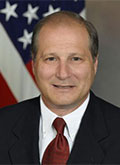 Observers and commentators need to stop referring to the ongoing conflict in Ukraine as Putin's "war of choice." This is an unprovoked, premeditated, scripted, war of aggression -- something the Nuremberg Tribunal after World War II called the "supreme international crime." The Russian campaign has also now targeted civilians, also a war crime, and nuclear power plants which are also war crimes. The alleged use by Putin of Islamist thugs and assassins from Chechnya to secure the Zaporizhzhia nuclear power plant (the largest in Europe) and the irresponsible shelling of the plant make it clear that Putin is using the implied threat of a nuclear incident to terrorize Ukraine and Europe and reinforce the impact of his earlier threats to use nuclear weapons in the conflict.
Observers and commentators need to stop referring to the ongoing conflict in Ukraine as Putin's "war of choice." This is an unprovoked, premeditated, scripted, war of aggression -- something the Nuremberg Tribunal after World War II called the "supreme international crime." The Russian campaign has also now targeted civilians, also a war crime, and nuclear power plants which are also war crimes. The alleged use by Putin of Islamist thugs and assassins from Chechnya to secure the Zaporizhzhia nuclear power plant (the largest in Europe) and the irresponsible shelling of the plant make it clear that Putin is using the implied threat of a nuclear incident to terrorize Ukraine and Europe and reinforce the impact of his earlier threats to use nuclear weapons in the conflict.
All of this underscores that the U.S., NATO, and the international community are not dealing with a normal nation state in this instance, but rather something more akin to a criminal enterprise. This is not the first time this has happened in international history. As the late historian Paul Schroeder pointed out years ago, Napoleon ran his foreign policy like a criminal enterprise as well until he finally succeeded in uniting all of Europe against him. This is an achievement that Putin seems well on his way to replicating.
March 4, 2022
RATING THE RISK OF NUCLEAR ESCALATION
Miller Center Senior Fellow Todd Sechser, an expert on nuclear security, tells NBC29 that the risk of nuclear escalation is small -- for now
 The world is on high alert following threats Russia has made towards using nuclear weapons as a result of its military invasion of Ukraine. “The risk of nuclear escalation is very small,” said University of Virginia Professor of Politics Todd Sechser. Sechser says just because the risk is low right now, doesn’t mean it will remain that way. “Russia didn’t seem to be moving any of its nuclear forces or increasing its readiness on the ground to use nuclear weapons,” Sechser said.
The world is on high alert following threats Russia has made towards using nuclear weapons as a result of its military invasion of Ukraine. “The risk of nuclear escalation is very small,” said University of Virginia Professor of Politics Todd Sechser. Sechser says just because the risk is low right now, doesn’t mean it will remain that way. “Russia didn’t seem to be moving any of its nuclear forces or increasing its readiness on the ground to use nuclear weapons,” Sechser said.
Sechser said that Russia has made three recent threats that warned of the potential for escalation, but there’s one main factor that could prevent tensions from boiling over: “As long as NATO countries don’t become directly engaged in combat with Russian forces, I would say the risk of nuclear weapons is extremely small,” Sechser said. But that doesn’t mean the world shouldn’t pay attention to the moves Russia is making. “Taking cautious and deliberate actions, I think, will help cooler heads prevail and reduce the risk of miscalculation or misunderstanding that could lead inadvertently to escalation,” Sechser said.
March 4, 2022
THE CHINA CONNECTION AND PUTIN'S ENDGAME
Miller Center Senior Fellow Dale Copeland discusses China's critical role in the crisis
 Vladimir Putin has got himself into a terrible mess. Aside from setting most of the world against him and reinvigorating the very alliance, NATO, which he claims he is acting to thwart, his actions in Ukraine have placed his own country on the brink of economic collapse. Such a collapse would not only endanger Russia’s position as a middle power between the economic superpowers of the United States and China, but it might even bring about his downfall. Putin’s original plans – of taking Ukraine quickly, installing a puppet regime in Kyiv, and perhaps lopping off the eastern half of Ukraine as parts of a reconstituted Russian empire – have been thrown out the window. At this point, he can either keep escalating and hope his situation improves or he can seek a way out that allows him to stay in power by claiming, at least to his military, that he has achieved a “victory” that makes Russia’s security position stronger. Most likely, in the short term, he will do the former to improve his bargaining position for the latter.
Vladimir Putin has got himself into a terrible mess. Aside from setting most of the world against him and reinvigorating the very alliance, NATO, which he claims he is acting to thwart, his actions in Ukraine have placed his own country on the brink of economic collapse. Such a collapse would not only endanger Russia’s position as a middle power between the economic superpowers of the United States and China, but it might even bring about his downfall. Putin’s original plans – of taking Ukraine quickly, installing a puppet regime in Kyiv, and perhaps lopping off the eastern half of Ukraine as parts of a reconstituted Russian empire – have been thrown out the window. At this point, he can either keep escalating and hope his situation improves or he can seek a way out that allows him to stay in power by claiming, at least to his military, that he has achieved a “victory” that makes Russia’s security position stronger. Most likely, in the short term, he will do the former to improve his bargaining position for the latter.
This is where China comes in. As of 2020, the European Union (EU) became China’s largest trade partner, overtaking China’s relationship with the United States. At present, most of that trade goes by sea. But Chinese leaders have been making a big push as part of their Belt and Road Initiative (BRI) to increase the transport of goods to and from Europe by rail. Railway links cut the transport time from China to the EU by 50 percent compared to sea, and Beijing expects this savings to grow significantly through the extension of its high-speed rail system. Even in the last five years, the amount of railway traffic connecting the EU and China has skyrocketed, going from a mere one percent of total EU-China trade to almost five percent and growing. Or at least it was growing prior to Russia’s invasion of Ukraine. Since most of the railways go through Russia and Belarus to get to the EU, Chinese leader Xi Jinping has been worried for some time about sanctions against these two countries interfering with burgeoning EU-China trade. He has developed an alternative route that goes through Central Asia and Turkey, and in the fall of 2021 held important talks with Ukraine to keep the trade flowing even if dictatorial Belarus is cut off from commerce with the EU. But with the imposition of severe sanctions against Russia and Belarus over the last week, this critical dimension of Xi’s whole BRI project – a project needed to sustain the six percent GDP growth the Chinese Communist Party (CCP) believes it requires to maintain stability at home – is now called into question.
All this means that China may be critical over the coming days and weeks in putting the kind of pressure on Putin needed to find a solution to his Ukrainian debacle. Already we see Beijing pulling back from full support of Putin. The China-dominated Asia Infrastructure Investment Bank has frozen all lending to Russia and Belarus. Government-controlled banks are restricting credit to Chinese firms responsible for the purchase of Russian oil and gas. If Xi starts to see not only a decline in EU-China trade but a more general slowdown in Europe and the world affecting his plans for continued economic growth, it is highly likely he will put direct pressure on Putin to find a face-saving exit strategy to the war against Ukraine. Russia needs the economic and political support of China in the coming days much more than China needs Russia. Most importantly, the long-term strength of China and legitimacy of the CCP are on the line. Mr. Putin, expect a phone call!
March 4, 2022
WHERE DOES THE WAR GO NEXT?
Miller Center Senior Fellow Allan Stam thinks about the implications if Russia next targets the Baltic States
 If the Russians can subdue Ukraine, where might an expansion-focused Russian leadership turn next? If restoring in part or whole the borders of the 19th century Russian empire is a goal of President Putin, then the Baltic States -- Lithuania, Latvia, and Estonia -- may be a target for aggression. The risks there for the United States are very high. First, these states are members of NATO, which means the U.S. is legally committed to their defense. Our willingness to honor that commitment affects the credibility of our defense commitments everywhere else in the world.
If the Russians can subdue Ukraine, where might an expansion-focused Russian leadership turn next? If restoring in part or whole the borders of the 19th century Russian empire is a goal of President Putin, then the Baltic States -- Lithuania, Latvia, and Estonia -- may be a target for aggression. The risks there for the United States are very high. First, these states are members of NATO, which means the U.S. is legally committed to their defense. Our willingness to honor that commitment affects the credibility of our defense commitments everywhere else in the world.
Unfortunately, the geography of national borders would make defending those countries difficult if not impossible using solely conventional weapons. First, they are physically small states, which restricts their ability to trade space for time, a standard defense strategy. The small scale also limits the ability of NATO states to forward-deploy large scale defensive forces. Geographically, NATO’s access is either by sea, where the Russians have a local tactical advantage, or through Poland, whose border with Lithuania is only about 65 miles long. In short, the Baltics are a long way from the U.S., hard to defend, and relatively easy to attack. The deterrent threat of nuclear weapons could change that calculus dramatically, but at the same time also dramatically increasing the risks to the world.
The condition of Mutually Assured Destruction between the United States and Russia makes the decision to go to war against each other less an issue of the balance of power, which from a nuclear weapons frame is binary, and more an issue of the balance of interests or resolve. The Russians have greater direct material interests in the Baltics, the United States has greater global reputational and credibility interests there. This is exactly the sort of situation that political scientists and game theorists struggled with during the Cold War – brinksmanship crises. The last serious nuclear crisis of this type was the Cuban Missile Crisis, in the end resolved by mutual forbearance by Kennedy and Khrushchev. The question today is will Presidents Biden and Putin be able to manage a similar crisis over the Baltics the way their predecessors did 60 years ago?
March 4, 2022
NEW UVA GLOBAL 'CRISIS IN UKRAINE' BLOG
Ambassador Stephen D. Mull and the UVA Global team are providing frequent updates
UVA experts and international students are the focus of this new rolling blog.
March 3, 2022
JOE BIDEN, WAR PRESIDENT
Miller Center Senior Fellow Eric Edelman is joined by Kori Schake of the American Enterprise Institute on the Shield of the Republic podcast
March 3, 2022
TAKING THE FORK IN THE ROAD: CHINA'S UKRAINE DILEMMA
Miller Center Senior Fellow Brantly Womack says that the last thing China wants is a new cold war
 Yogi Berra’s famous line about seizing the non-choice is an apt description for China’s reaction thus far to Putin’s invasion of the Ukraine. On the one hand, China abstained from the UN vote condemning the invasion, on the other, China’s foreign minister reiterated the longstanding foreign policy commitment to respect sovereignty in his conversation with his Ukrainian counterpart. There are mixed opinions among the Chinese public about the invasion, but the government has deeper reasons for kicking the fork down the road. The last thing China wants is a new Cold War.
Yogi Berra’s famous line about seizing the non-choice is an apt description for China’s reaction thus far to Putin’s invasion of the Ukraine. On the one hand, China abstained from the UN vote condemning the invasion, on the other, China’s foreign minister reiterated the longstanding foreign policy commitment to respect sovereignty in his conversation with his Ukrainian counterpart. There are mixed opinions among the Chinese public about the invasion, but the government has deeper reasons for kicking the fork down the road. The last thing China wants is a new Cold War.
China is the world’s largest trading nation, and in 2020 the top trading partner of Russia, the European Union, the United States, Ukraine, and 55 other countries. Its trade with Ukraine is twice that of Russia’s trade with its neighbor. The global economy would suffer from polarization, and China is a major stakeholder. Besides the gloomy prospect of de-globalization, if NATO and Putin are glaring at each other, how will the land half of China’s Belt and Road Initiative reach Duisburg, Germany? And if the rail link fails to reach Europe, what value are its segments in the Central Asian states? A new Cold War would turn Eurasia back into Eur-asia.
But economics isn’t the only problem. How can China take sides when its disapproval of the tactics of both sides—invasion and sanctions—is long and strong? China’s own wars of choice, with India in 1962 and with Vietnam in 1979, have been quick and short. It is skeptical of the wisdom of sticky wars and occupations, whether those of the United States in Vietnam, Iraq, and Afghanistan, or of the Soviet Union in Afghanistan. But it considers sanctions to be the tool of the devil, and it has much bitter experience on the receiving end. After the 1989 Tiananmen suppression, China was subject to multinational sanctions, and President Donald Trump added almost a thousand new sanctions per year, many against China. China views sanctions in general as a post-colonial tool of developed country bullying.
China also has an aversion to military alliances. It prefers partnerships, open-ended and rather vague, and it has these with all the parties in the current dispute except the United States. It is enthusiastic in supporting multilateral groupings such at the Association of Southeast Asian Nations (ASEAN) or the Shanghai Cooperation Organization (SCO), but these are not even alignments, let alone alliances. The SCO recently admitted both India and Pakistan. It also supports UN peacekeeping operations. Among the Permanent Five it is the largest supplier of blue helmets. But it does not appreciate President Biden’s efforts to revivify old Pacific alliances or to add new military relationships such as Aukus, the trilateral security pact with Australia and the United Kingdom involving nuclear submarine cooperation.
Lastly, China is all thumbs when it comes to soundbites and public diplomacy.
No one can say anything until the top leader nods. Pronouncements are likely to be long-winded and subtle, not the more satisfying denunciations and praise. Behind the scenes, Chinese judgments are more pointed, but diplomacy tends to be diplomatic. China knows the benefit of rhetorical restraint. As the Soviet Union abandoned communism and fell apart in 1989-91, China withheld public censure despite private disgust, and by the mid-1990s was able to build a new relationship with Russian President Boris Yeltsin. Given the possibilities of a long or even escalatory confrontation in Ukraine, China will do what it can—behind the scenes—to encourage some sort of settlement and to avoid the Cold War framing. Imagine Don Quixote with a fork rather than a lance.
March 3, 2022
A LESS OBVIOUS CAUSE OF THE UKRAINE INVASION
Miller Center Senior Fellow Allan Stam contends that environmental politics have increased security risks
 Among the underappreciated causes of the Ukraine War are European and American environmental politics. Green energy policies of the past two decades have significantly increased the military security risks the international system faces. As we see today in Ukraine, energy inter-dependence of European states with Russia greatly limits the Europeans’ and Americans’ ability to counter military aggression. The greatest and gravest error seems to be the elimination of nuclear energy as a central source of electric power generation in Germany.
Among the underappreciated causes of the Ukraine War are European and American environmental politics. Green energy policies of the past two decades have significantly increased the military security risks the international system faces. As we see today in Ukraine, energy inter-dependence of European states with Russia greatly limits the Europeans’ and Americans’ ability to counter military aggression. The greatest and gravest error seems to be the elimination of nuclear energy as a central source of electric power generation in Germany.
There are two general explanations for the Ukraine War. The first tends to focus on aspects of U.S. and NATO expansion policy over the past 30 years that eventually triggered the Russians into attacking Ukraine. The second view focuses on President Putin’s naked territorial ambition and places most if not all of the blame on the Russians as aggressors. But there is a third perspective that reframes the question away from what caused the Russians to want to conquer Ukraine to why were Europe and the United States unable to deter the Russians? The first two frames highlight long-term causes, focusing on underlying conflicts of interests. The alternative perspective looks at the more immediate factors that influence the credibility and costs associated with deterrent threats. Both perspectives warrant careful attention.
Direct military threats aimed at Russia are largely off the table for NATO and the United States. This is because of the defensive nature of the alliance and the condition of Mutually Assured Destruction between the U.S. and Russia. As a result, economic sanctioning is the coercive tool we are left with. In recent days, the Europeans and the U.S. Treasury have restricted Russian access to the international banking system. They have restricted Russians’ ability to travel. Social punishments and individually targeted sanctions have been imposed on Russia and dozens of individual Russians -- all with apparently minimal effect. The moment the Russians attacked Ukraine, it was clear that the threatened sanctions failed to deter Putin.
A fair question is, why haven’t the sanctions been more costly? Europeans and Americans have not cut off Russia from its greatest source of foreign currency, the export of petroleum products and natural gas. Every day the Russians continue to send gas and oil into international markets. Every day, hard currency continues to flow into Russian coffers. This is happening in part because the Europeans closed many of their coal fired power plants in pursuit of green energy policies. Angela Merkel’s hasty reaction following the 2011 Fukushima reactor meltdown in Japan led the Germans to shutter their nuclear power plants. As a result, they are increasingly dependent on Russia for energy supplies. European dependence on Russian natural gas and the decline of U.S. energy independence have weakened our collective ability to impose truly punitive economic sanctions on the Russians. As a result, we must rely on weaker threats and hope for Russian forbearance. Tragically, the latter failed us, and the former proved to be too weak to overcome Putin's desires to acquire some or all of Ukraine.
March 2, 2022
HOW RUSSIA’S ATTACK ON UKRAINE THREATENS DEMOCRACY EVERYWHERE
Miller Center Senior Fellow John M. Owen IV, an expert on international security, talks with UVA Today about escalating threats to democracy
 Putin is attacking not just the government, military, people and territory of Ukraine, but also Ukrainian democracy. Ukraine has never been a stable constitutional democracy; it is better to say that it is an aspiring democracy. But Putin does not want successful democracies on Russia’s border, and he is taking aggressive steps to keep constitutional self-government far away. Having democracy next door undermines his own authoritarian regime in Russia. And free-market democracies, at least in Europe, tend to be carriers of American influence and power. It is pretty clear that Putin wants Ukraine to be like neighboring Belarus – a pliable authoritarian country.
Putin is attacking not just the government, military, people and territory of Ukraine, but also Ukrainian democracy. Ukraine has never been a stable constitutional democracy; it is better to say that it is an aspiring democracy. But Putin does not want successful democracies on Russia’s border, and he is taking aggressive steps to keep constitutional self-government far away. Having democracy next door undermines his own authoritarian regime in Russia. And free-market democracies, at least in Europe, tend to be carriers of American influence and power. It is pretty clear that Putin wants Ukraine to be like neighboring Belarus – a pliable authoritarian country.
If Putin succeeds in Ukraine, it certainly will not doom democracy around the world or even in Europe. But we have much research that suggests that domestic regime types, including liberal or constitutional democracy, tend to spread and contract in waves over time and geographic space. Political regimes spread through a number of mechanisms. One is by setting a successful example, such as when democracies sustain economic growth and stability. Another is by a kind of osmosis: social contact across borders can have effects. A third is by active promotion, usually by a great power – such as what Russia is doing now. A fourth is through contagion, such as happened in the Soviet satellite states of Central Europe in 1989. Finally, international rules and institutions can, depending on their content, favor democracy or authoritarianism. Since World War II, and especially since around 1990, they have favored free-market democracies – although they clearly need reform today.
March 2, 2022
SIX THOUGHTS ON HOW RUSSIA MIGHT SEE THE INVASION
UVA Russia expert Allen Lynch offers some informed speculation
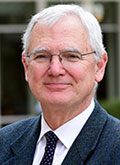 1. If Putin took the decision to invade principally to prevent Ukraine from continuing to gravitate toward NATO, then many of the actions that NATO/EU countries are currently taking are likely to reinforce his conviction that he did the right thing and constitute incentives to double down.
1. If Putin took the decision to invade principally to prevent Ukraine from continuing to gravitate toward NATO, then many of the actions that NATO/EU countries are currently taking are likely to reinforce his conviction that he did the right thing and constitute incentives to double down.
2. If the sanctions wind up bringing down the Russian economy, we’re then back to the 1990s, with a massively insecure Weapons of Mass Destruction infrastructure.
3. Putin’s nuclear alert, combined with the pattern of Russian strikes in the west of Ukraine, seem aimed at deterring NATO from large-scale materiel reinforcement along the long Ukrainian border with Poland, Hungary, Slovakia, and Romania. I believe that he would not hesitate to strike such convoys inside Ukraine. But a nuclear order would probably not be carried out by Russian officials and could even provoke a coup.
4. Off ramps? Have Sweden and Finland send very high-level delegations to Moscow with this message: Begin an immediate and indefinite ceasefire or we’re in NATO the next day. That would get a lot of attention in Moscow; I don’t believe that there is broad enthusiasm for this war even among the Russian elite. If the cost of continuing the war is to bring all of Scandinavia into NATO, that is a significant loss. This could cause a fracture in Putin’s coalition of the “militocracy."
5. Russian public opinion is definitely not on the side of this war, paradoxically for the very reason that Putin invokes to justify it: Ties between Russians and Ukrainians are so close, with millions of mixed marriages in each country, that the war disgusts them.
6. The idea that Putin has gone mad and is isolated? Just look at the massive collaboration needed to bring about this war. Note also that such an explanation conveniently excuses those invoking it from examining NATO’s (and the EU’s) own complicity in polarizing the choices over Ukraine’s international future over a very long time. Note that the April 2008 NATO statement that Ukraine and Georgia “will” one day join the alliance in fact meant the opposite, since the French and Germans were opposed to it as needlessly provocative to Russia. That’s why there has never been a program, criteria, or calendar for Ukraine to join NATO. So for the US/NATO to make this the crucial issue was deeply irresponsible and even immoral.
March 2, 2022
RISKS OF THE WAR IN UKRAINE
Miller Center Senior Fellow Allan Stam, an expert on modern warfare, posits what could happen next
 Once countries, soldiers, and citizens begin shooting one another, many so-called "known unknowns" become resolved in unexpected ways. In the Ukraine War, two of the most important initial uncertainties were the resilience of the Ukrainian people and the leadership abilities of President Zelensky. Many in Europe and the United States resolved this uncertainty by assuming the Ukrainians would quickly capitulate, as they had in 2014 when Russia invaded and annexed the Crimean Peninsula.
Once countries, soldiers, and citizens begin shooting one another, many so-called "known unknowns" become resolved in unexpected ways. In the Ukraine War, two of the most important initial uncertainties were the resilience of the Ukrainian people and the leadership abilities of President Zelensky. Many in Europe and the United States resolved this uncertainty by assuming the Ukrainians would quickly capitulate, as they had in 2014 when Russia invaded and annexed the Crimean Peninsula.
Eight years later, that assumption has proven wildly off the mark. As a result, the prospects for the Ukrainians seem somewhat more hopeful than they had just a week ago. At the same time, the costs of the war for the Russians are turning out to be significantly greater than they had anticipated. So what is the likely effect of this turn of events?
Historically, wars expand in scale as well as scope beyond what their initiators originally planned. When events go better than initially expected, history suggests that the initiator’s aims will expand beyond their initial goals, reflecting increased optimism. Perhaps counterintuitively, if events go poorly for the side that started the war -- in this case the Russians -- their aims may expand. Countries at war that are doing worse than expected routinely escalate their demands on the eventual losing side, in attempts to recover greater than expected sunk costs.
The tendency of wars to escalate rather than spontaneously diminish suggests that we are seeing the beginning of an increasingly brutal process. If the Ukrainians are able to transition from the initial conventional war to a durable urban insurgency, the Russians may respond by escalating both their demands as well as the intensity of their attacks. In turn, this outcome will dramatically increase the risks of the war spilling over to neighboring countries. But that is a question for another post.
March 1, 2022
HOW THE WEST SHOULD RESPOND TO PUTIN'S WAR WITH UKRAINE
Miller Center Senior Fellow Eric Edelman, former undersecretary of defense for policy, offers insights about Vladimir Putin gained from his encounters with him
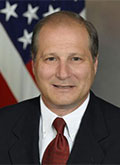 "I think that there was something I always thought a little bit off about his personality," Edelman tells Bill Kristol. "But I'm not a psychiatrist; I don't play one on TV. And I try not to do too much psychoanalysis of political figures. But there clearly seemed to be something slightly off. Now, this is also, I think, part of his professional training. He was a KGB counterintelligence officer. And counterintelligence officers are famously extremely paranoid. The world of counterintelligence is what people cal "the wilderness of mirrors" behind which everybody is a potential double or triple agent. So paranoia, I think, comes naturally to Putin."
"I think that there was something I always thought a little bit off about his personality," Edelman tells Bill Kristol. "But I'm not a psychiatrist; I don't play one on TV. And I try not to do too much psychoanalysis of political figures. But there clearly seemed to be something slightly off. Now, this is also, I think, part of his professional training. He was a KGB counterintelligence officer. And counterintelligence officers are famously extremely paranoid. The world of counterintelligence is what people cal "the wilderness of mirrors" behind which everybody is a potential double or triple agent. So paranoia, I think, comes naturally to Putin."
March 1, 2022
WHAT NATO SHOULD DO NOW
Miller Center Senior Fellow Eric Edelman writes that NATO’s leaders now have a chance to reinvigorate the alliance
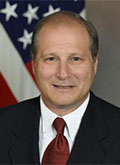 Since the beginning of Russia’s full-scale invasion of Ukraine, NATO has shown more unity and resilience than it has in years. Its purpose is clear, its strategy is unified, and what once seemed like vast chasms between its members now seem neither so deep nor so wide. Despite the criminal and gut-wrenching violence in Ukraine, NATO is strong, and must use its strength in this moment with judgment and celerity.
Since the beginning of Russia’s full-scale invasion of Ukraine, NATO has shown more unity and resilience than it has in years. Its purpose is clear, its strategy is unified, and what once seemed like vast chasms between its members now seem neither so deep nor so wide. Despite the criminal and gut-wrenching violence in Ukraine, NATO is strong, and must use its strength in this moment with judgment and celerity.
The Russian invasion of Ukraine will transform the European security landscape for years to come. Notwithstanding the clear, united warnings to Russian President Vladimir Putin that his actions would have severe consequences, the reality is that Putin was never going to be deterred. His megalomania and narcissistic need to right the alleged wrongs imposed on Russia after 1991 led him down this tragic path.
February 28, 2022
FROM SANCTIONS TO CYBERATTACKS: WHAT’S NEXT IN THE UKRAINE CONFLICT?
Miller Center Senior Fellow Kristen Eichensehr discusses numerous dilemmas for the international community
 Regardless of how [the conflict] started, [international humanitarian law] is designed to apply even when the international system and international law has failed to avoid conflict as it has here. And there have already been reports of Russian strikes on civilian targets … . So even as things unfold, it’s important to be working to document war crimes, crimes against humanity, and to be looking forward to a day when hopefully the international system will bring perpetrators of those crimes to justice. …
Regardless of how [the conflict] started, [international humanitarian law] is designed to apply even when the international system and international law has failed to avoid conflict as it has here. And there have already been reports of Russian strikes on civilian targets … . So even as things unfold, it’s important to be working to document war crimes, crimes against humanity, and to be looking forward to a day when hopefully the international system will bring perpetrators of those crimes to justice. …
Part of the reason that the illegality of Russia’s actions here is so clear is because of the actions the Biden administration has taken over the last few weeks to strategically declassify intelligence — so, the warnings that you’ve seen in the media about pretext and false flag operations that Russia would use to claim a justification for invading. The U.S. intel community has I think been proven extremely accurate in its forecast about Russia’s plans. And, at least in my opinion, that the Biden administration deserves a lot of credit for using those strategic disclosures to undermine Russian claims, and also to build unity among allies about the illegality of Russia’s actions and the need for a significant response. So there is no fig leaf of legality here for Putin to hide behind.
February 28, 2022
HOW WORRIED SHOULD WE BE ABOUT RUSSIA USING NUCLEAR WEAPONS?
Miller Center Senior Fellows Stephen D. Mull and Todd Sechser discuss Russia's nuclear brinkmanship
 Late last week, Russian President Vladimir Putin raised the specter of nuclear conflict when he announced his country would place its nuclear deterrent on high alert. Tuesday, President Joe Biden addresses the nation in his first State of the Union Address, with topics including war in Europe and the emerging threat to democracies suddenly at the forefront.
Late last week, Russian President Vladimir Putin raised the specter of nuclear conflict when he announced his country would place its nuclear deterrent on high alert. Tuesday, President Joe Biden addresses the nation in his first State of the Union Address, with topics including war in Europe and the emerging threat to democracies suddenly at the forefront.
 UVA Today checked in with two experts on issues regarding the threat of nuclear brinkmanship, the influence of today’s events on the bigger picture of global democracy and freedom, and the importance of the leadership responsibility of the United States in what happens next.
UVA Today checked in with two experts on issues regarding the threat of nuclear brinkmanship, the influence of today’s events on the bigger picture of global democracy and freedom, and the importance of the leadership responsibility of the United States in what happens next.
February 28, 2022
RUSSIA'S NUCLEAR THREATS: WHAT YOU NEED TO KNOW
Todd Sechser, author of Nuclear Weapons and Coercive Diplomacy, tells CNN that Putin may not have thought through the implications of his nuclear threat
 Sechser says Putin may not have thought it all through. "Russia has now played most of its escalatory cards, and doesn't have many tools left for resolving this crisis in its favor. The nuclear alert seems like more an act of frustration than a calculated tactical move," he said in an email.
Sechser says Putin may not have thought it all through. "Russia has now played most of its escalatory cards, and doesn't have many tools left for resolving this crisis in its favor. The nuclear alert seems like more an act of frustration than a calculated tactical move," he said in an email.
"If the nuclear alert was intended to coerce the United States and Europe into tempering economic sanctions or abandoning Ukraine, it failed. If anything, it has served to further inflame world opinion against Russia," Sechser added.
February 25, 2022
RUSSIA AS A PARIAH STATE
Miller Center Senior Fellow Eric Edelman discusses Putin’s illegal war of aggression against Ukraine on the Shield of the Republic podcast
February 25, 2022
THREAT OF RUSSIAN CYBER ATTACKS
Miller Center Senior Fellow Kristen Eichensehr discusses the threat of Russian cyber attacks
 Eichensehr, a cybersecurity expert, tells Bloomberg Radio's Balance of Power host David Westin that "there are several buckets of risk here. The first is the risk to Ukraine itself....the second kind of risk is spillover from attacks against Ukraine...NATO has said that Article 5 does cover cyberattacks, but there is a threshold requirement. It has to reach a threshold of severity."
Eichensehr, a cybersecurity expert, tells Bloomberg Radio's Balance of Power host David Westin that "there are several buckets of risk here. The first is the risk to Ukraine itself....the second kind of risk is spillover from attacks against Ukraine...NATO has said that Article 5 does cover cyberattacks, but there is a threshold requirement. It has to reach a threshold of severity."
February 24, 2022
CHINA FACES IRRECONCILABLE CHOICES ON UKRAINE
Miller Center Senior Fellow Evan Feigenbaum, an expert on China, writes that China aims to avoid being dragged too directly into a conflict between Russia and the West
 Russia’s invasion of Ukraine is an important test of China’s policy evolution, tactical positioning, and strategic choices. Beijing is selfish about its own interests and will not want Washington to be the one to frame China’s alternatives. But Beijing is trying to strike an impossible balance by seeking to pursue three goals simultaneously: a strategic partnership with Russia, commitment to long-standing foreign policy principles of “territorial integrity” and “noninterference,” and a desire to minimize collateral damage from EU and U.S. sanctions.
Russia’s invasion of Ukraine is an important test of China’s policy evolution, tactical positioning, and strategic choices. Beijing is selfish about its own interests and will not want Washington to be the one to frame China’s alternatives. But Beijing is trying to strike an impossible balance by seeking to pursue three goals simultaneously: a strategic partnership with Russia, commitment to long-standing foreign policy principles of “territorial integrity” and “noninterference,” and a desire to minimize collateral damage from EU and U.S. sanctions.
Beijing cannot reconcile these three competing objectives. And since it cannot have all three, it will have to jettison one or another, or else uncomfortably shift its position from day to day under the glare of international scrutiny. China’s almost certain choice will be to abandon its principles while prioritizing power politics and practical considerations.
 Miller Center Director of Presidential Studies
Miller Center Director of Presidential Studies  Miller Center Senior Fellow Kristen Eichensehr, director of UVA's National Security Law Center, weighs in
Miller Center Senior Fellow Kristen Eichensehr, director of UVA's National Security Law Center, weighs in